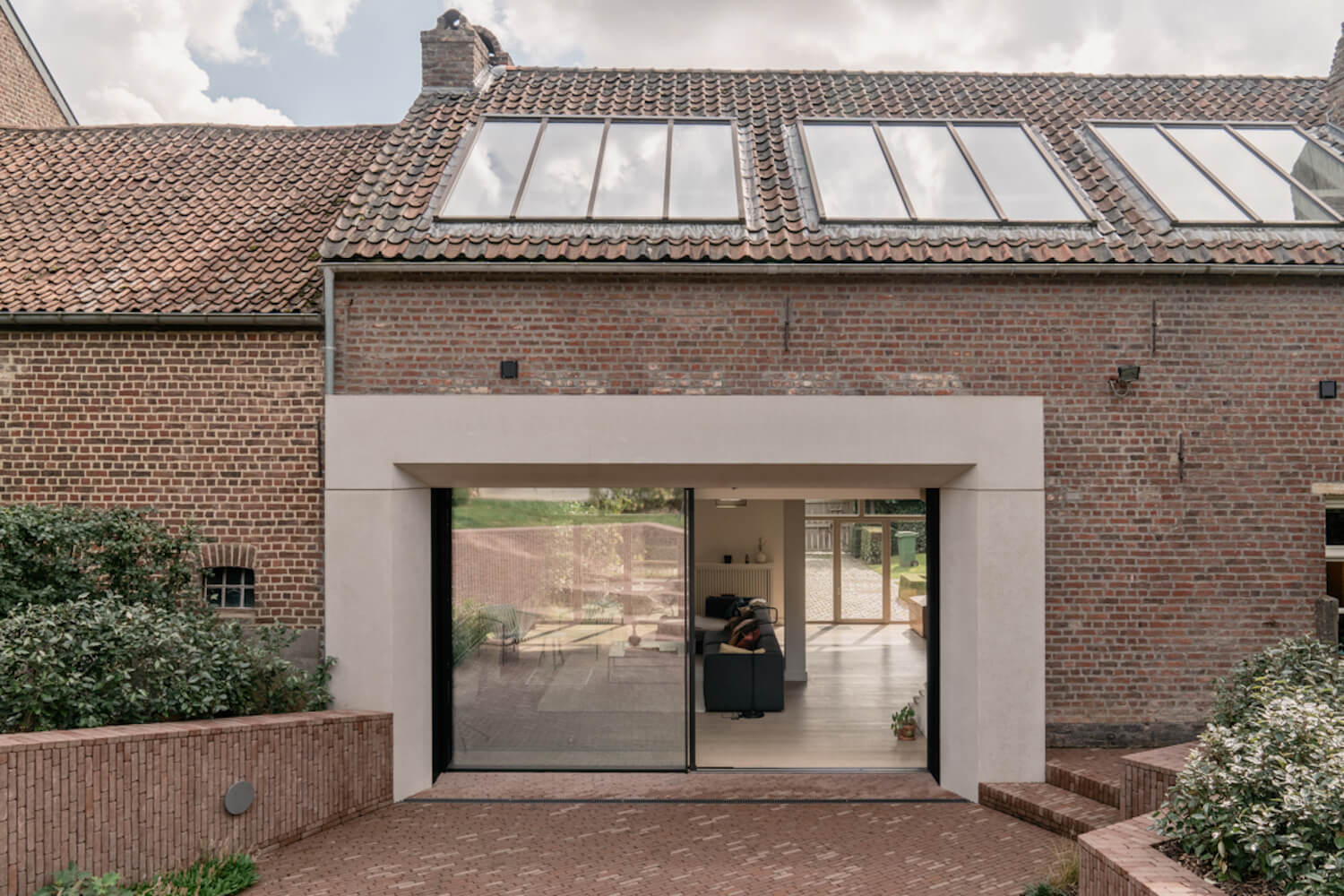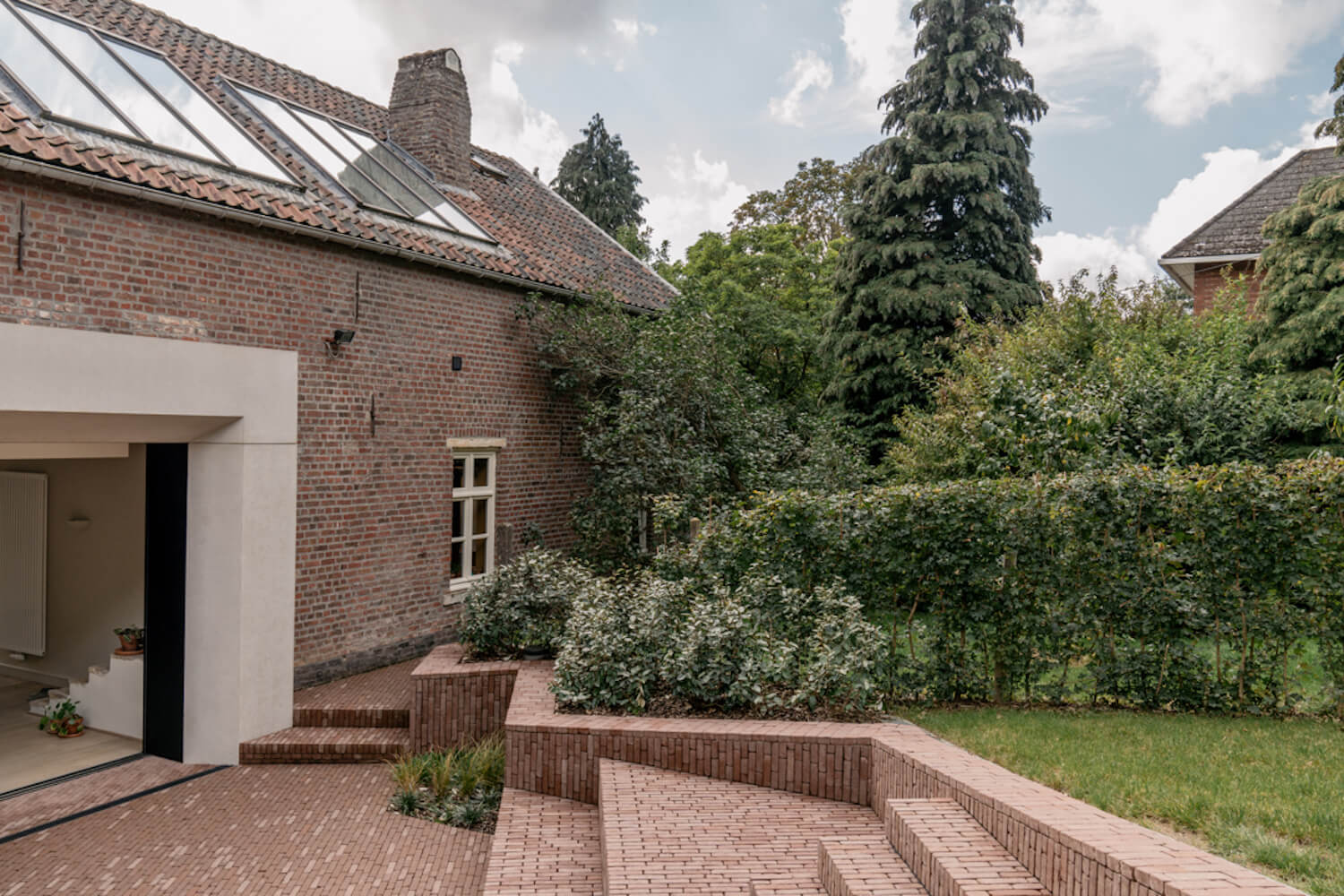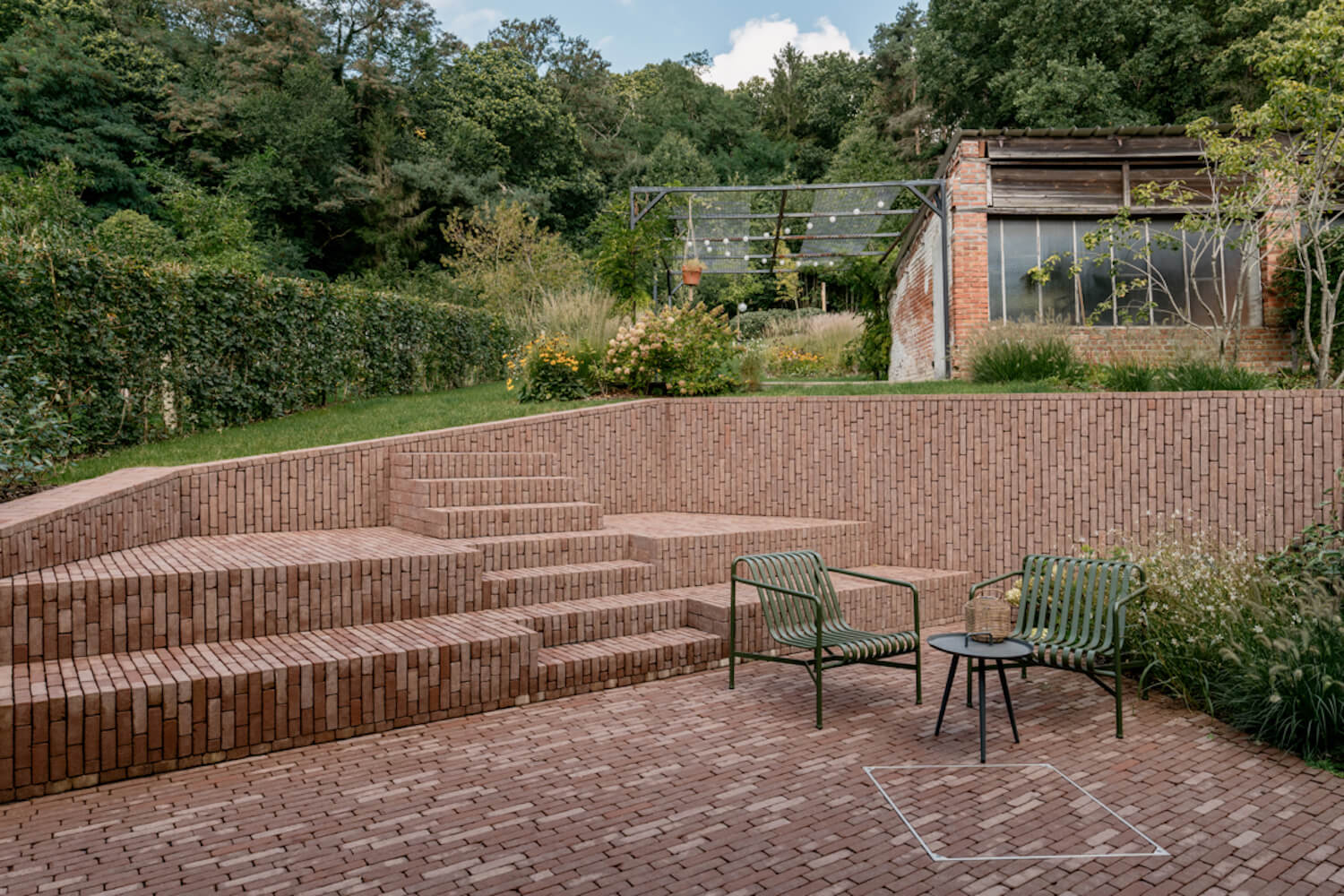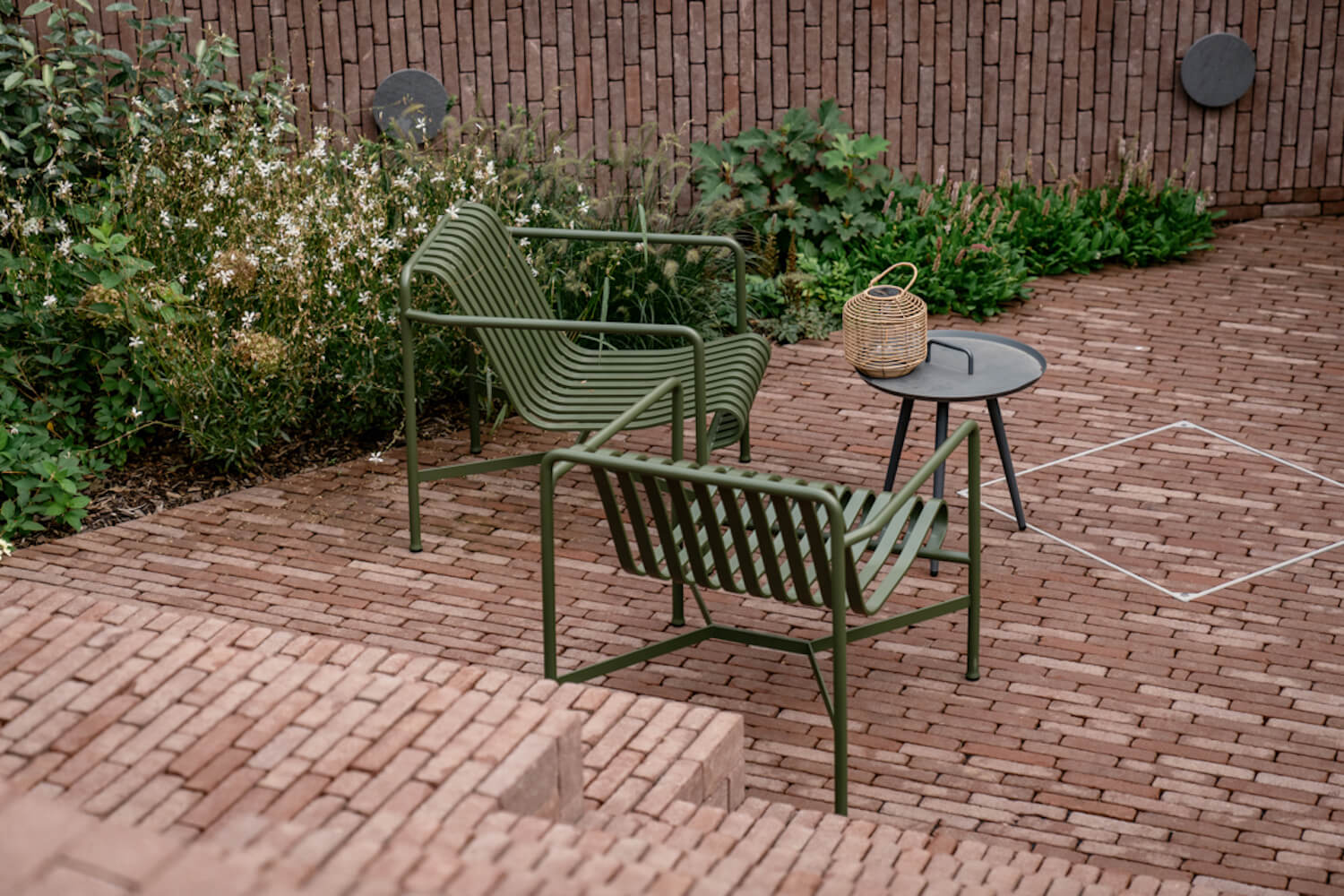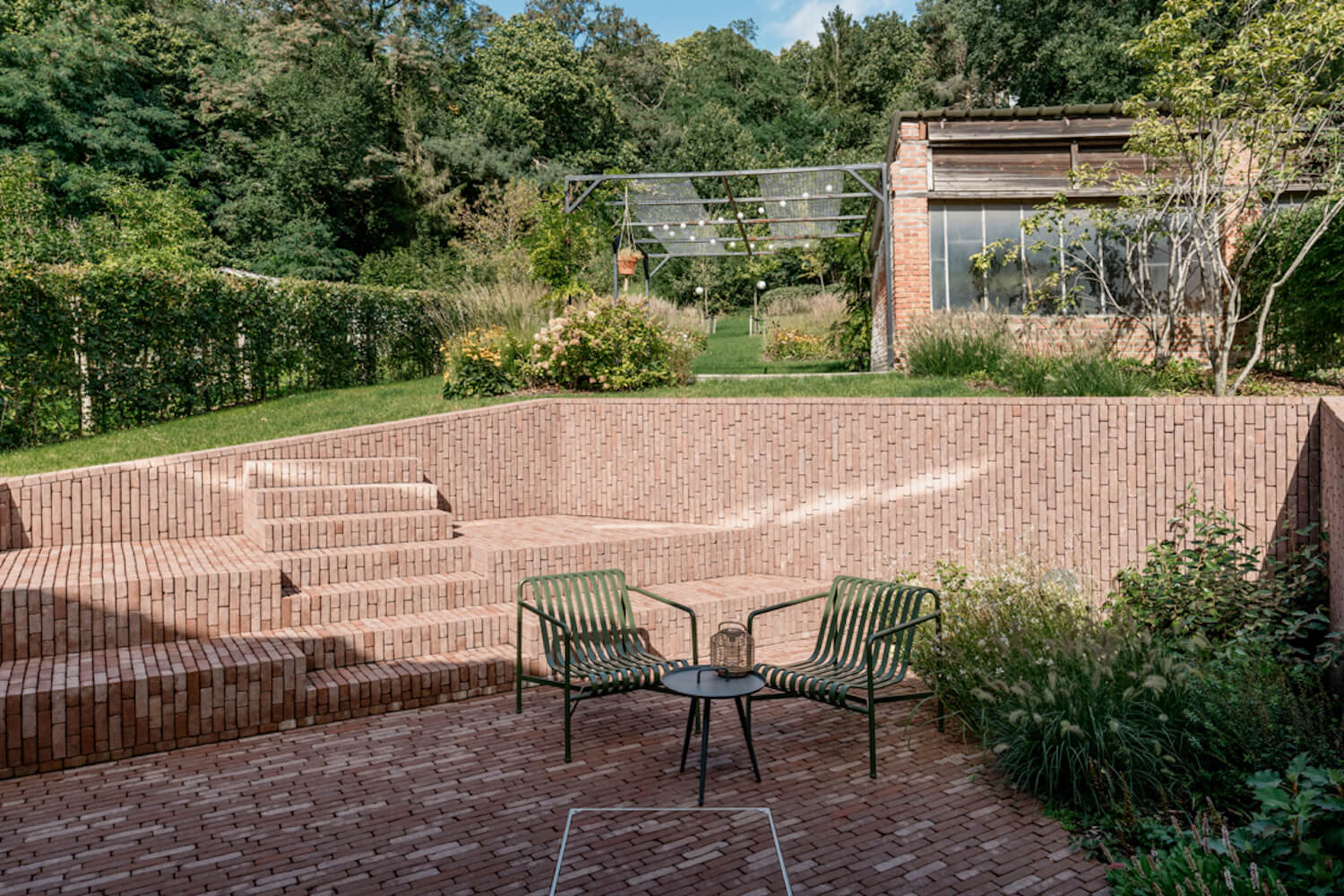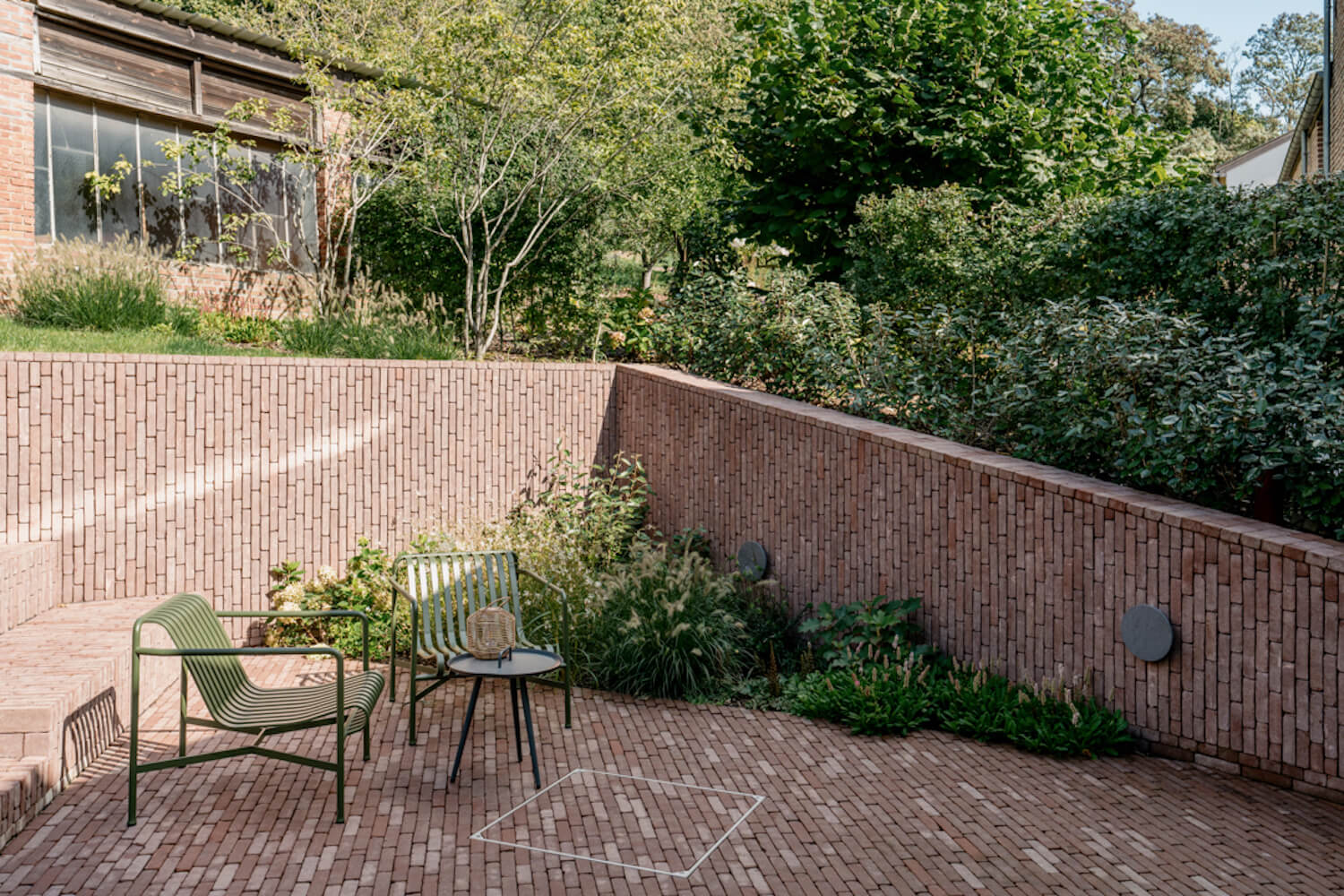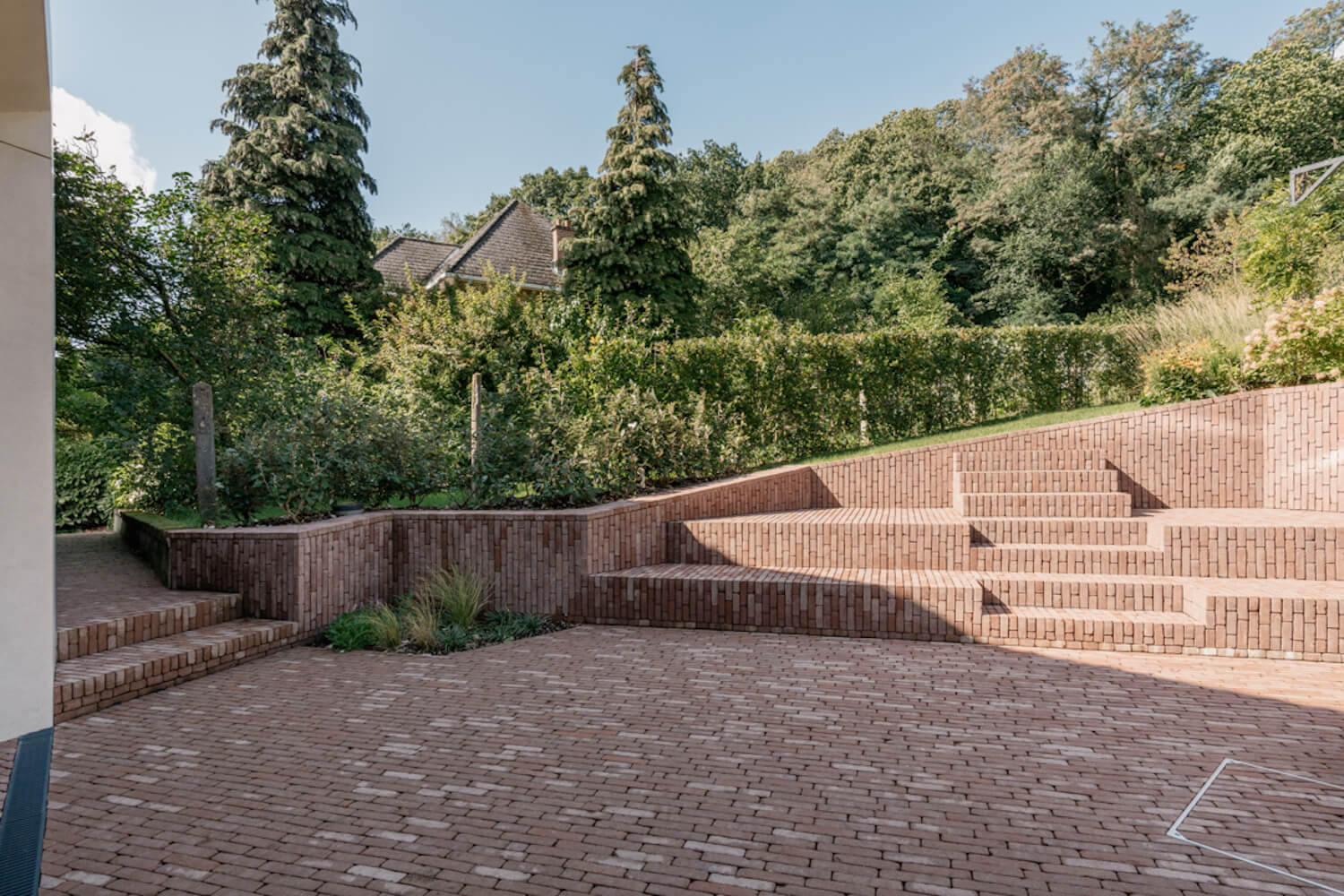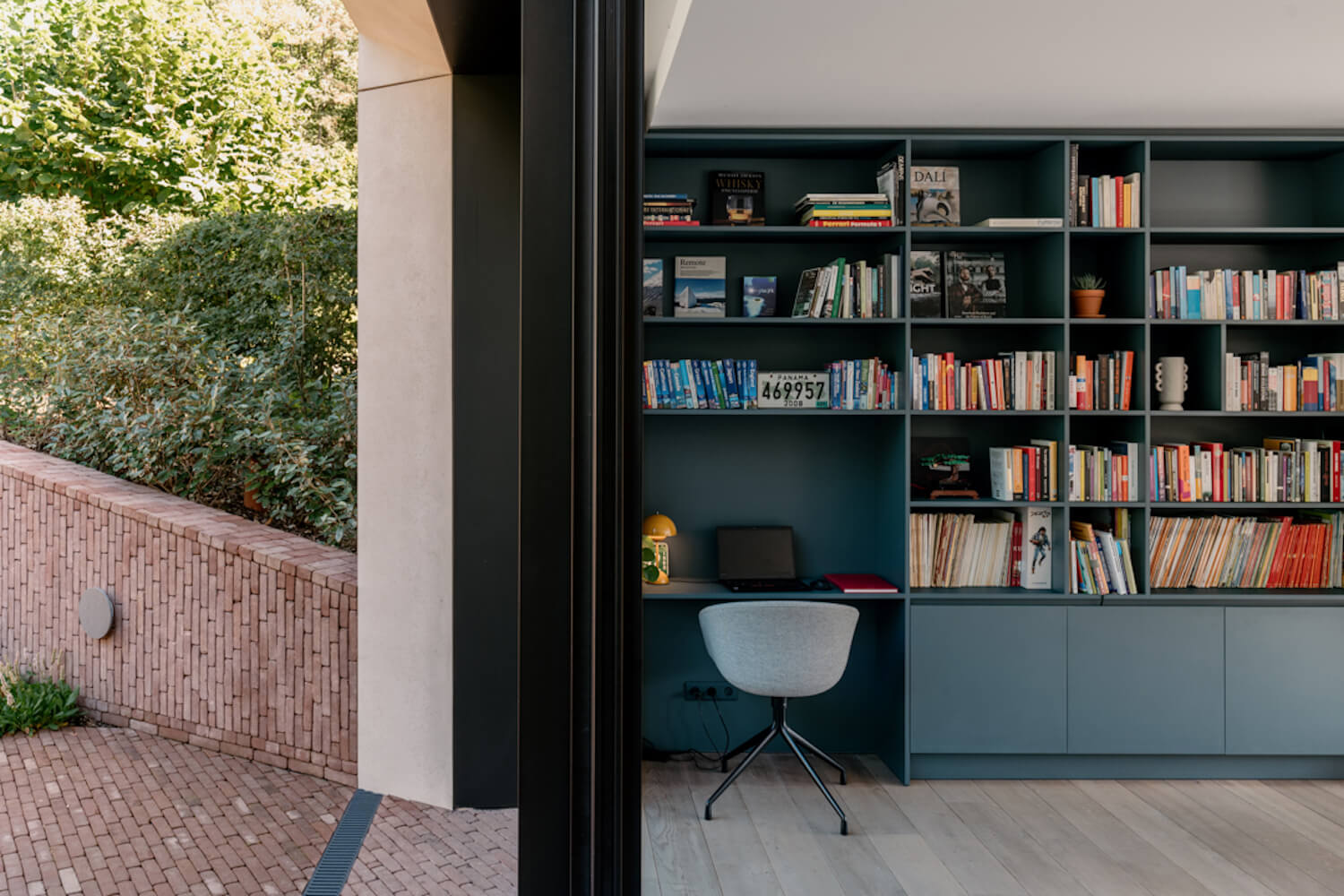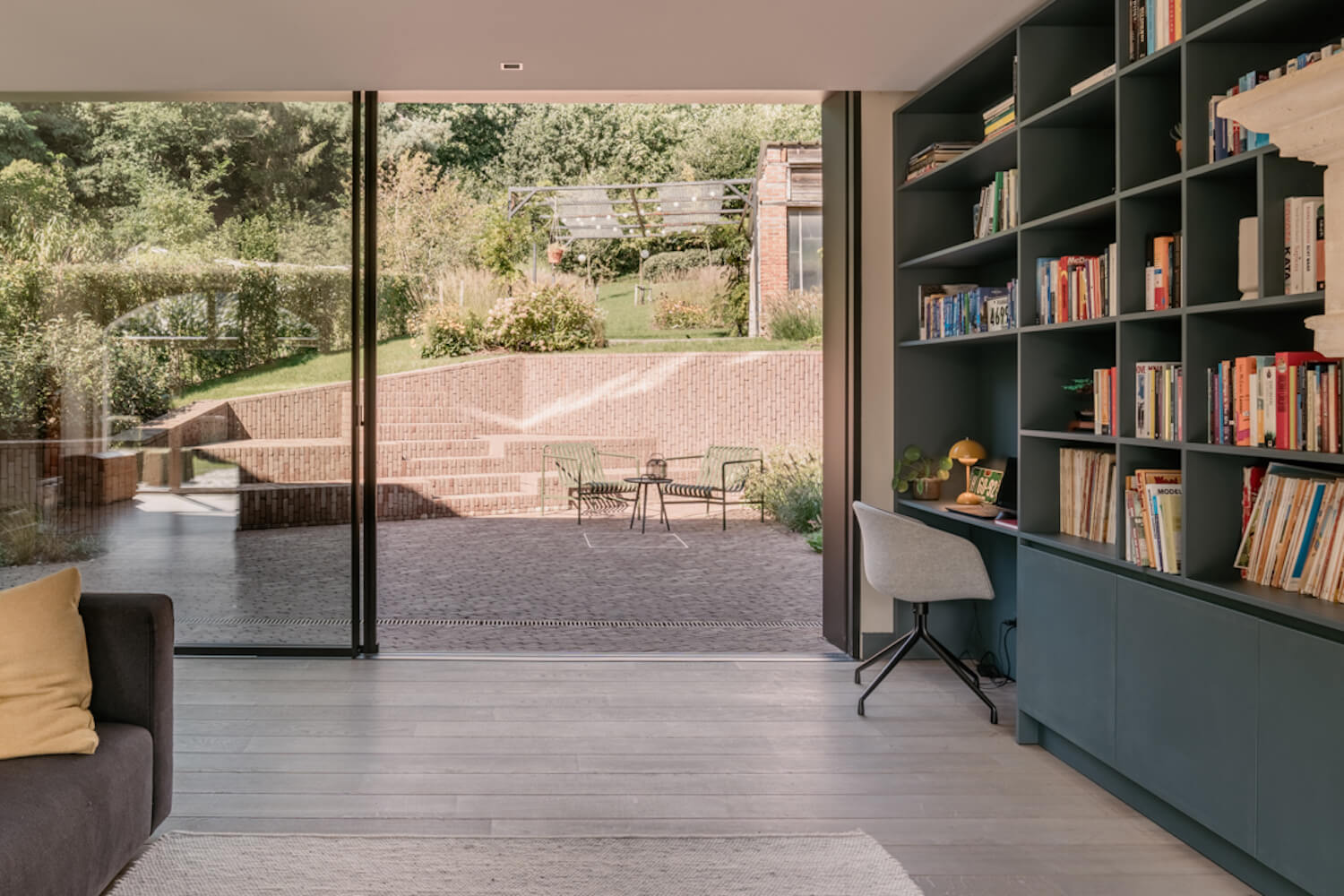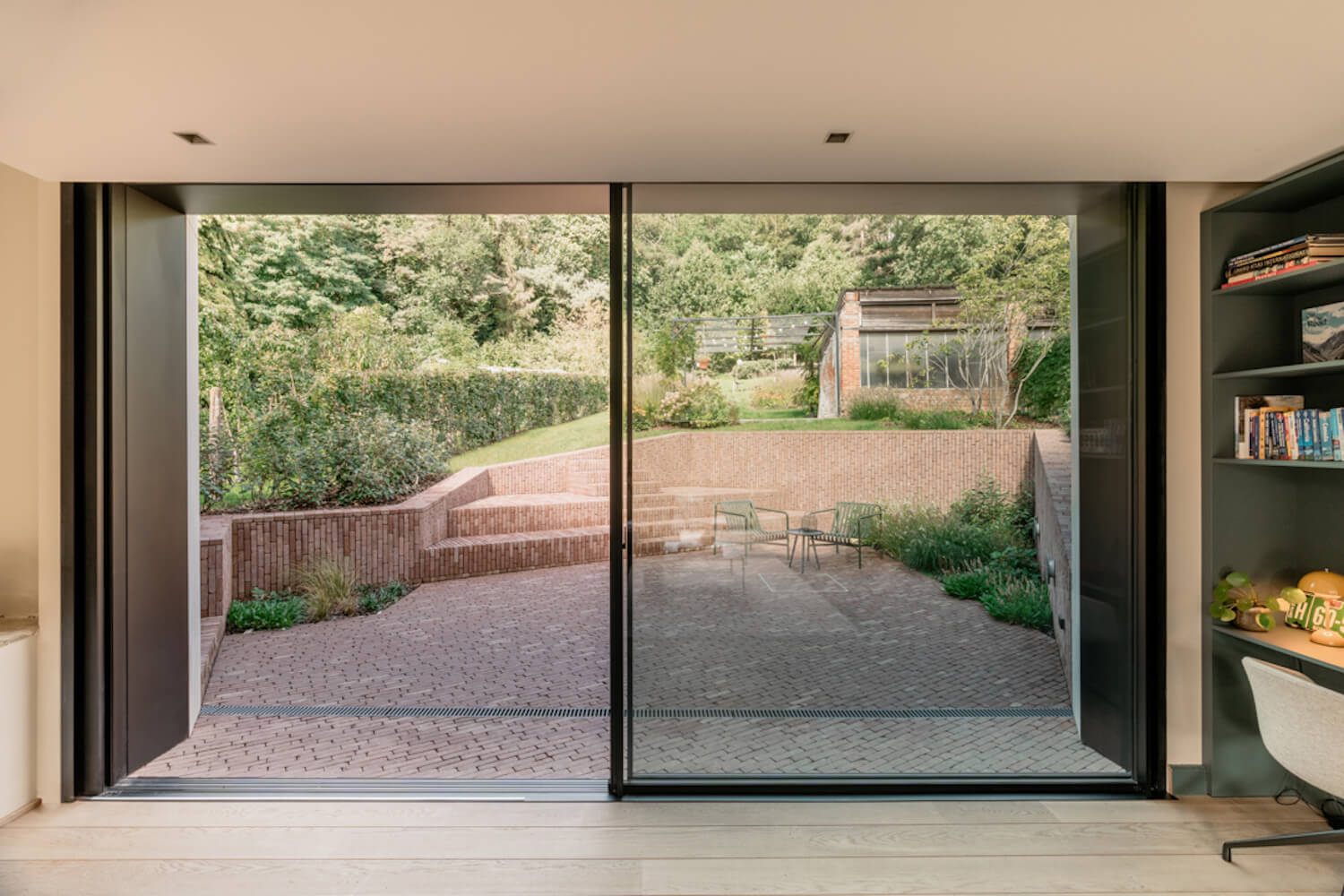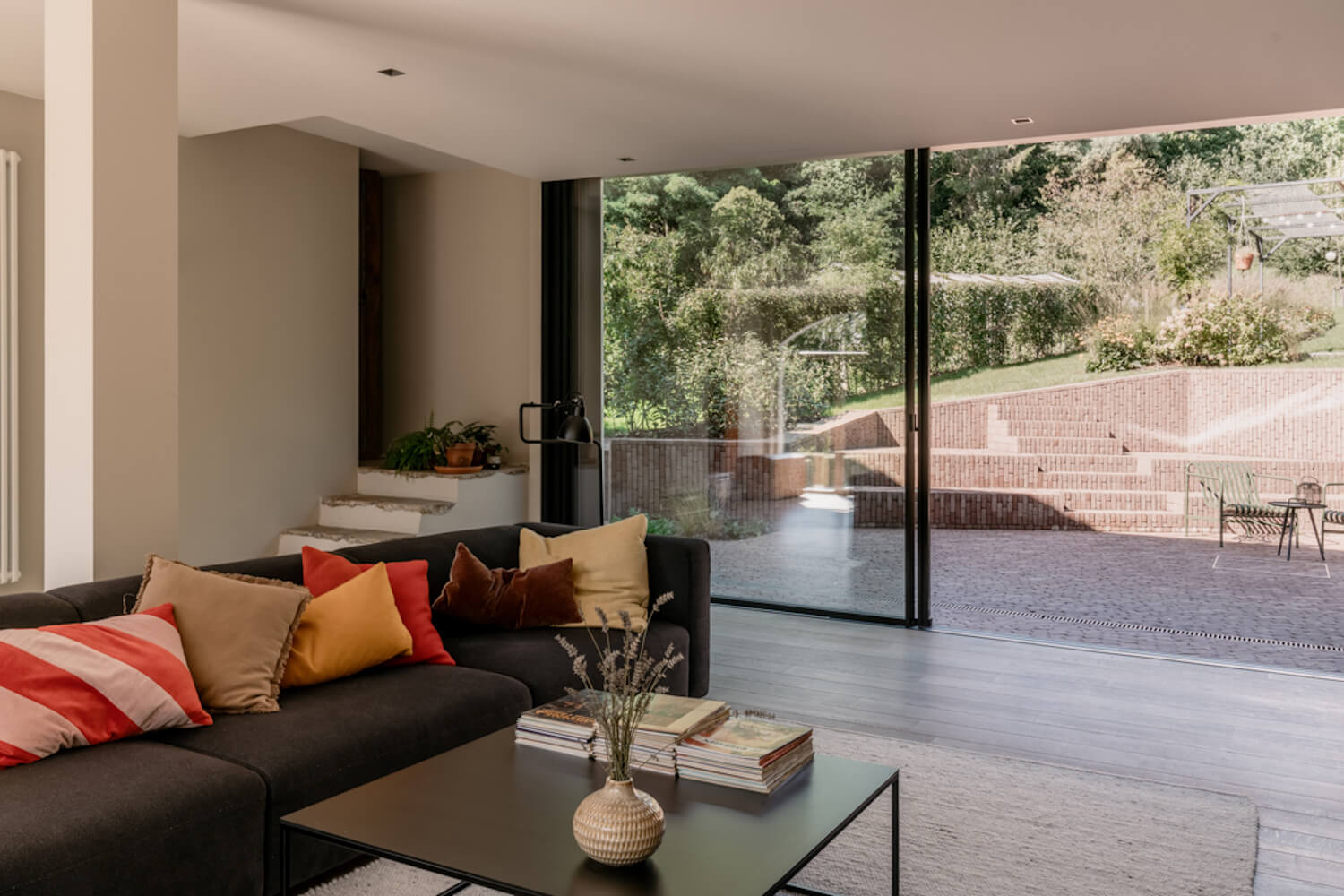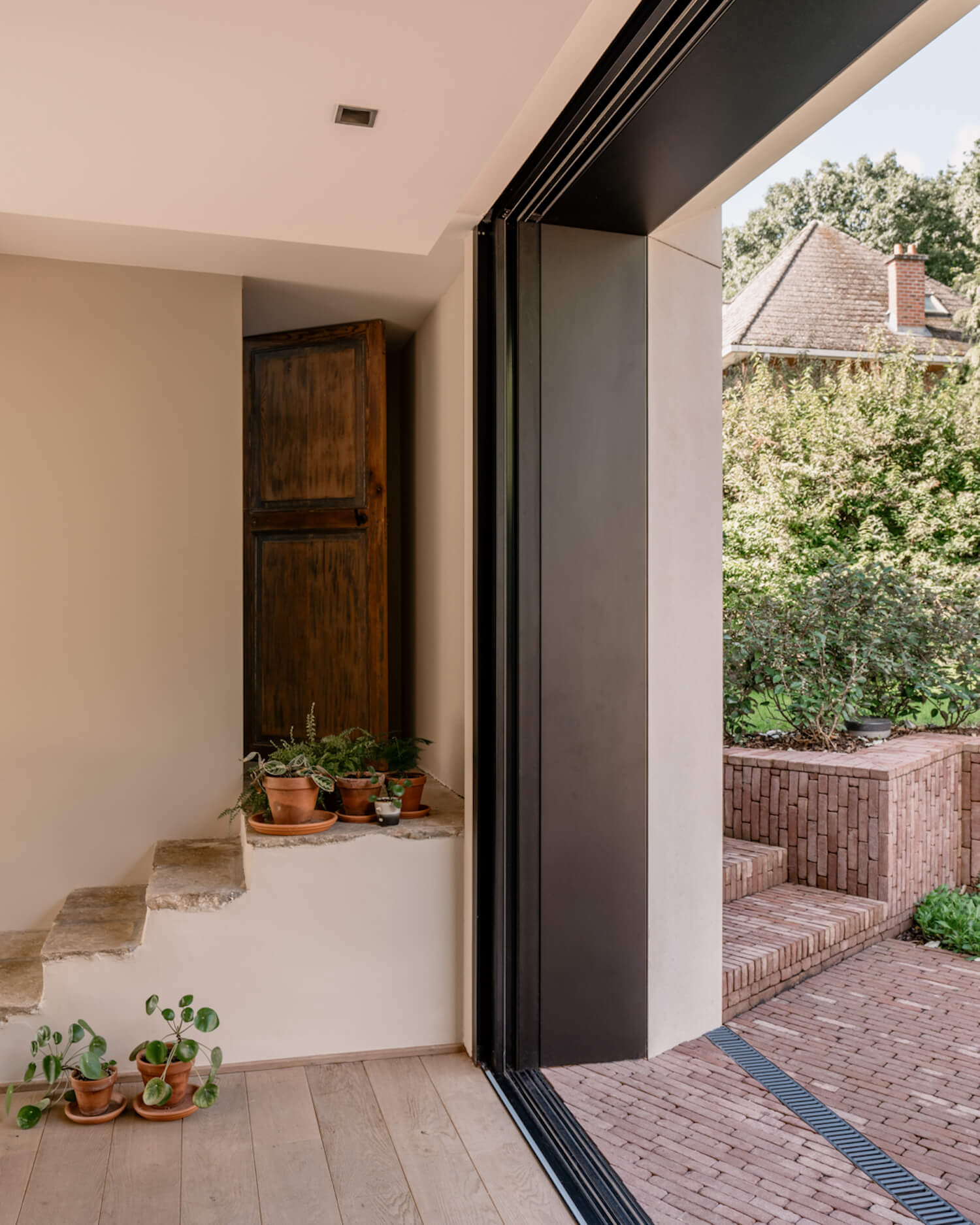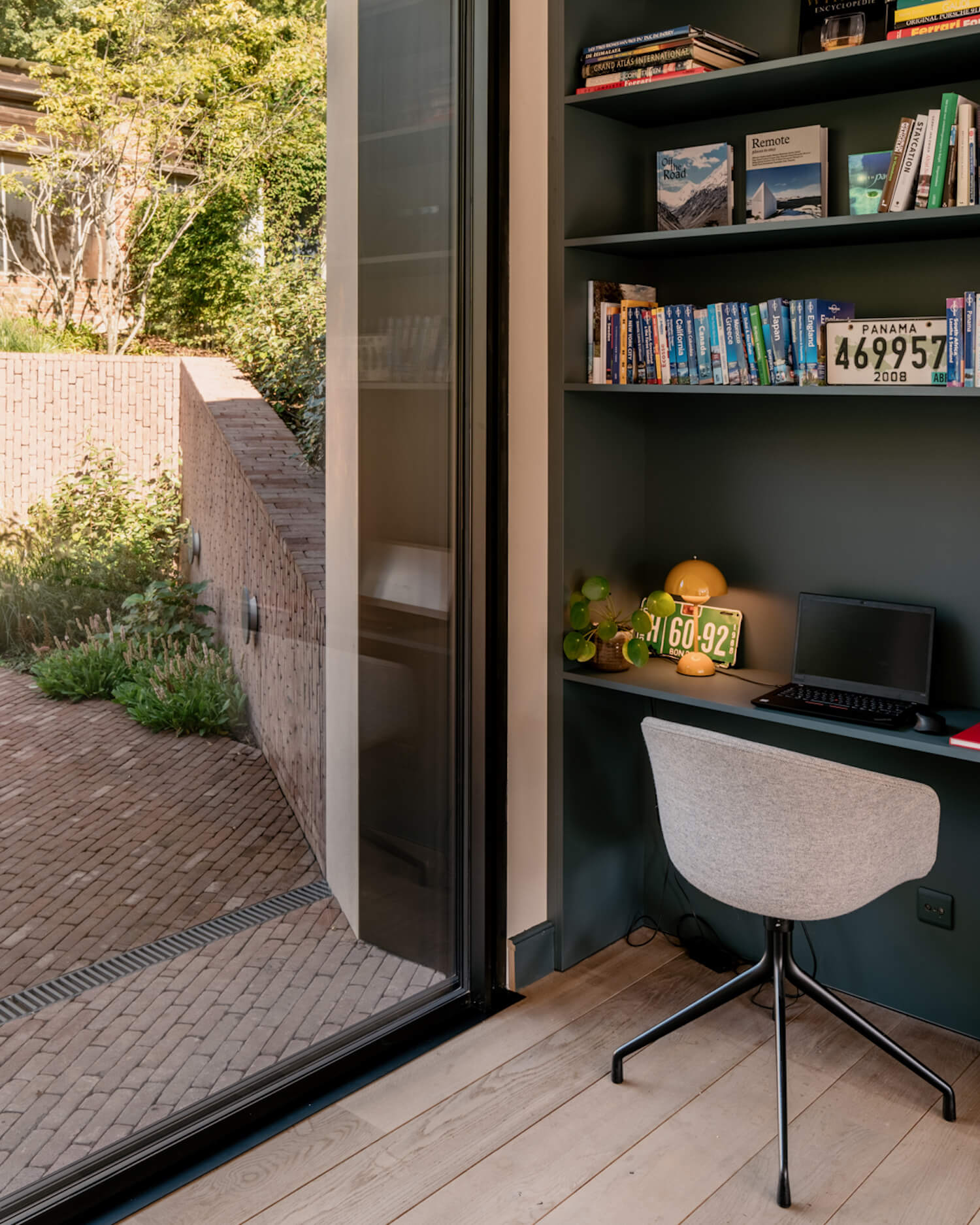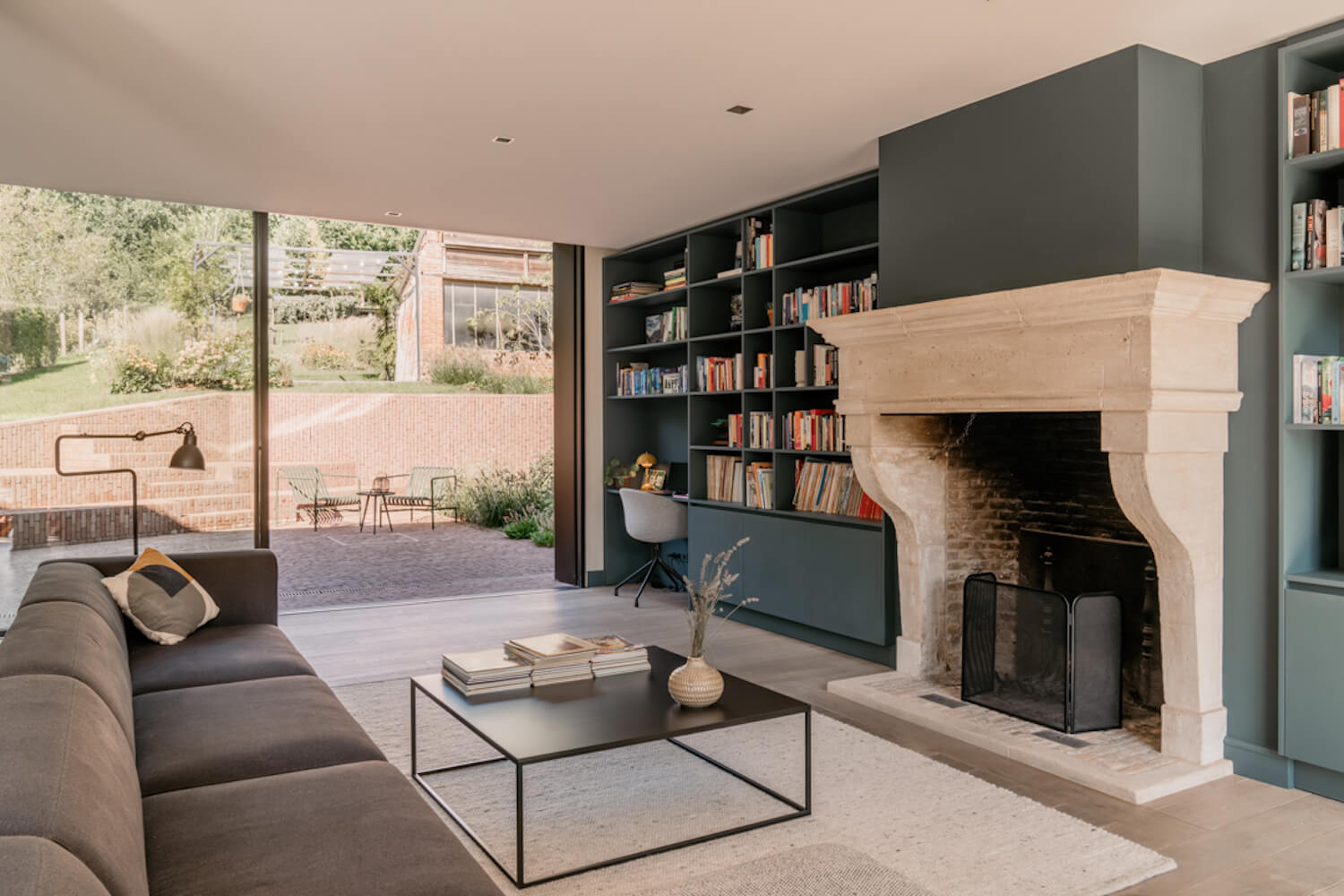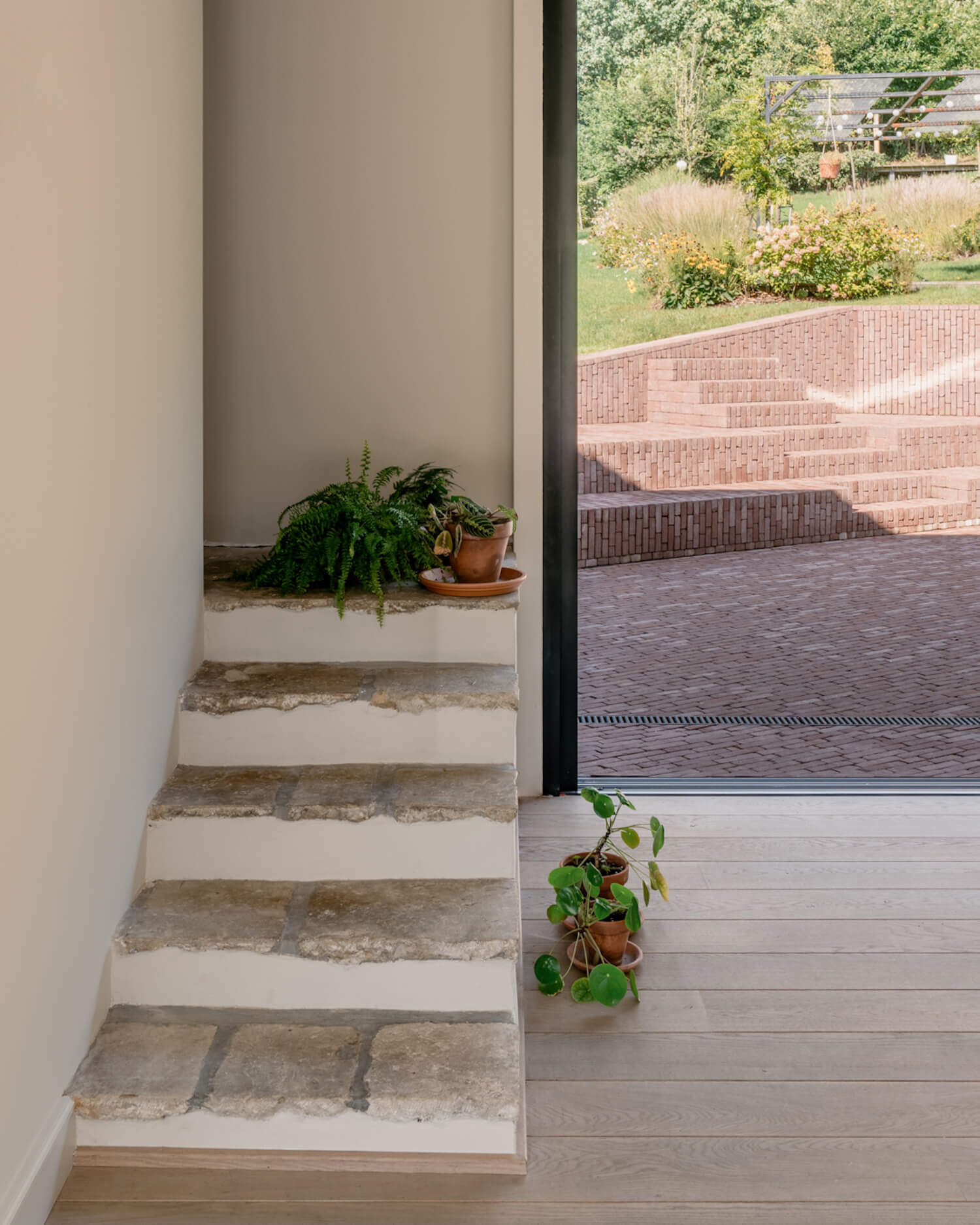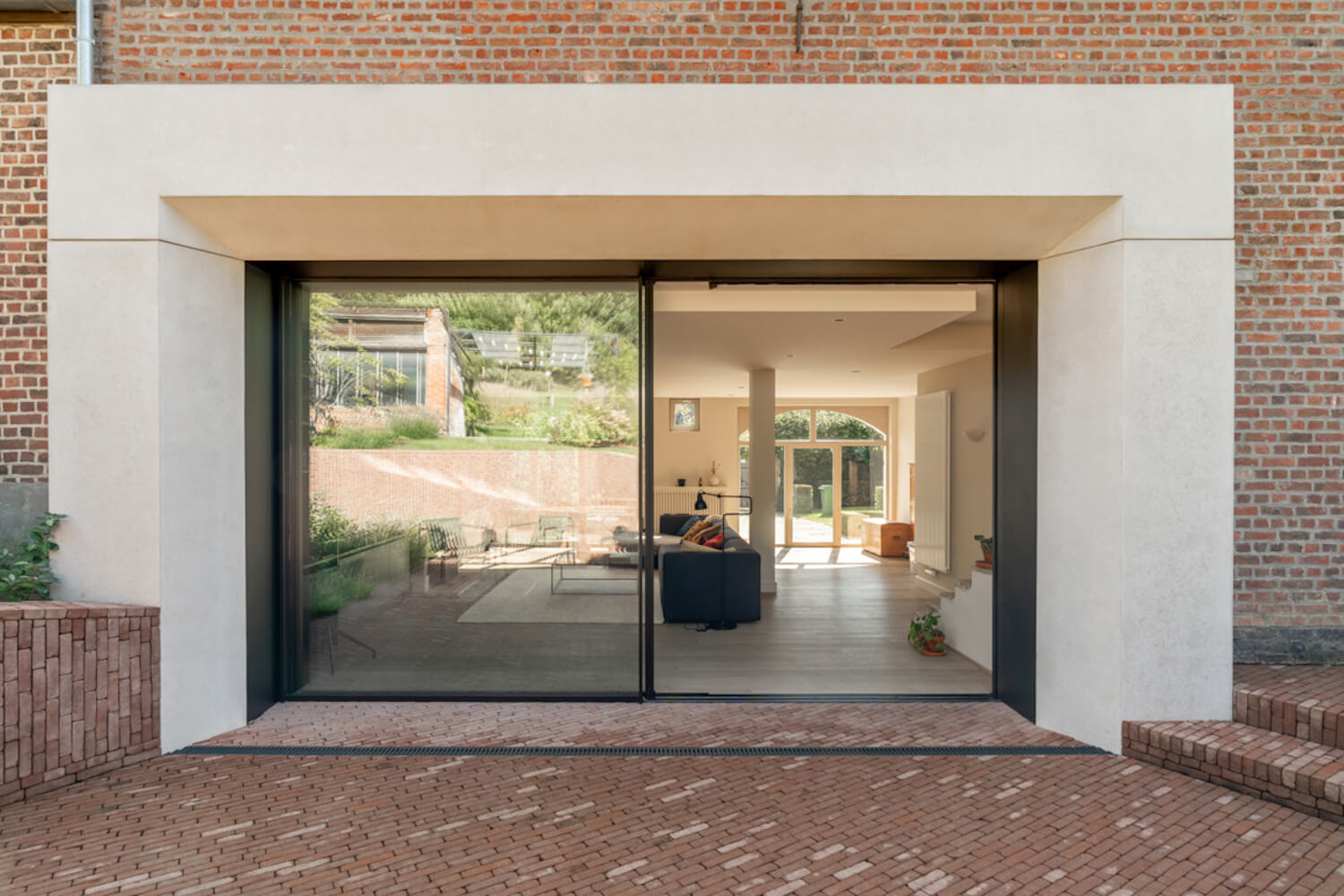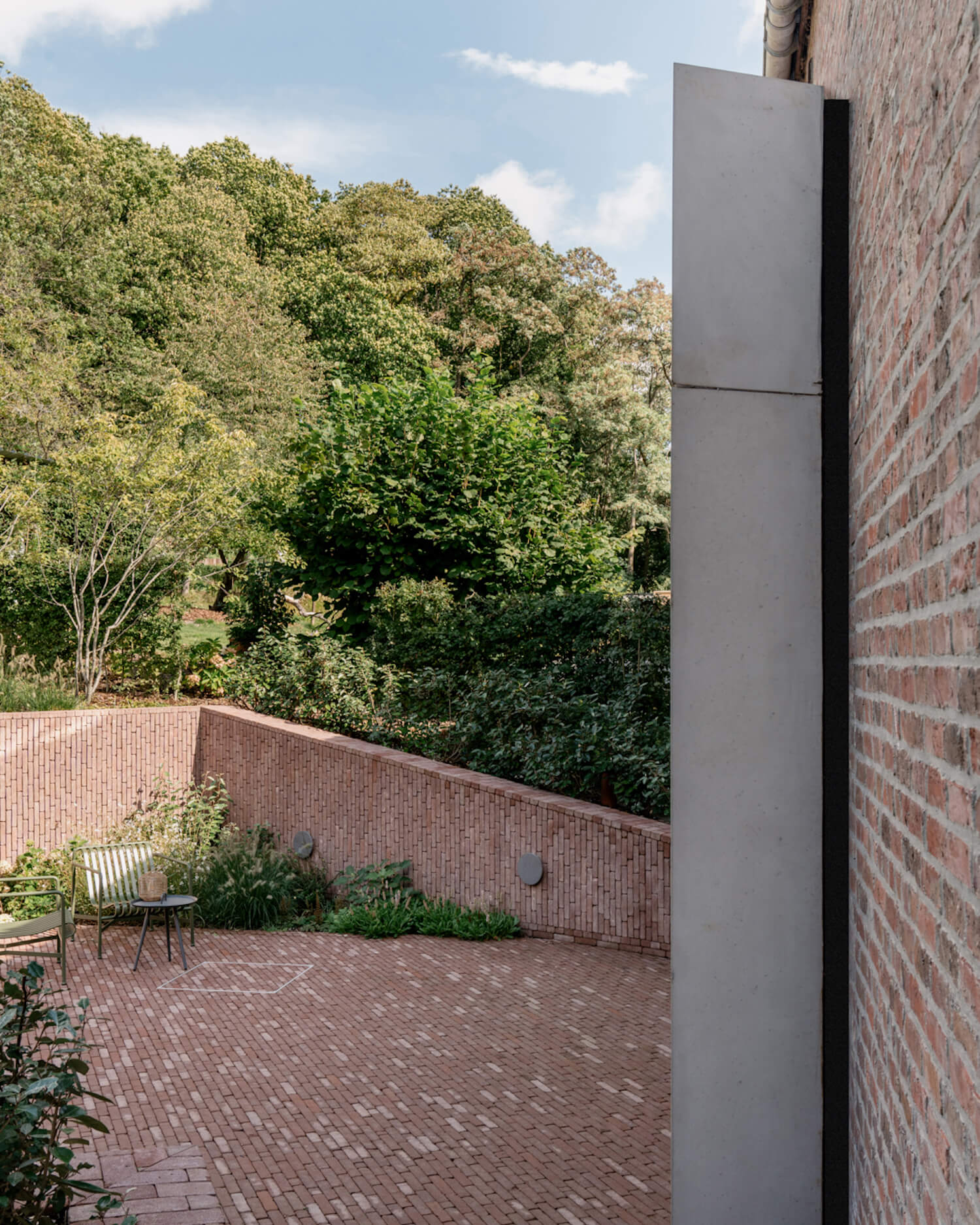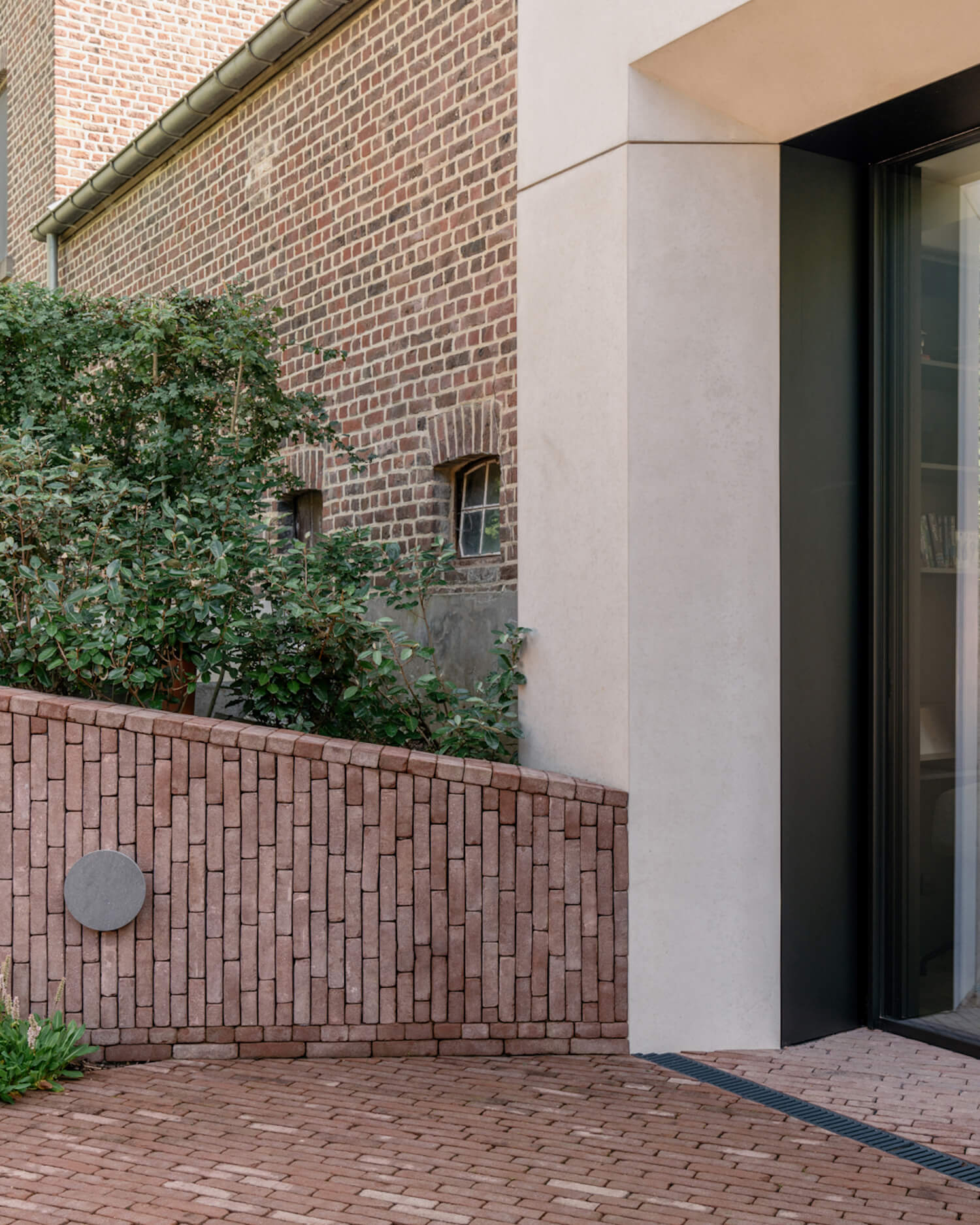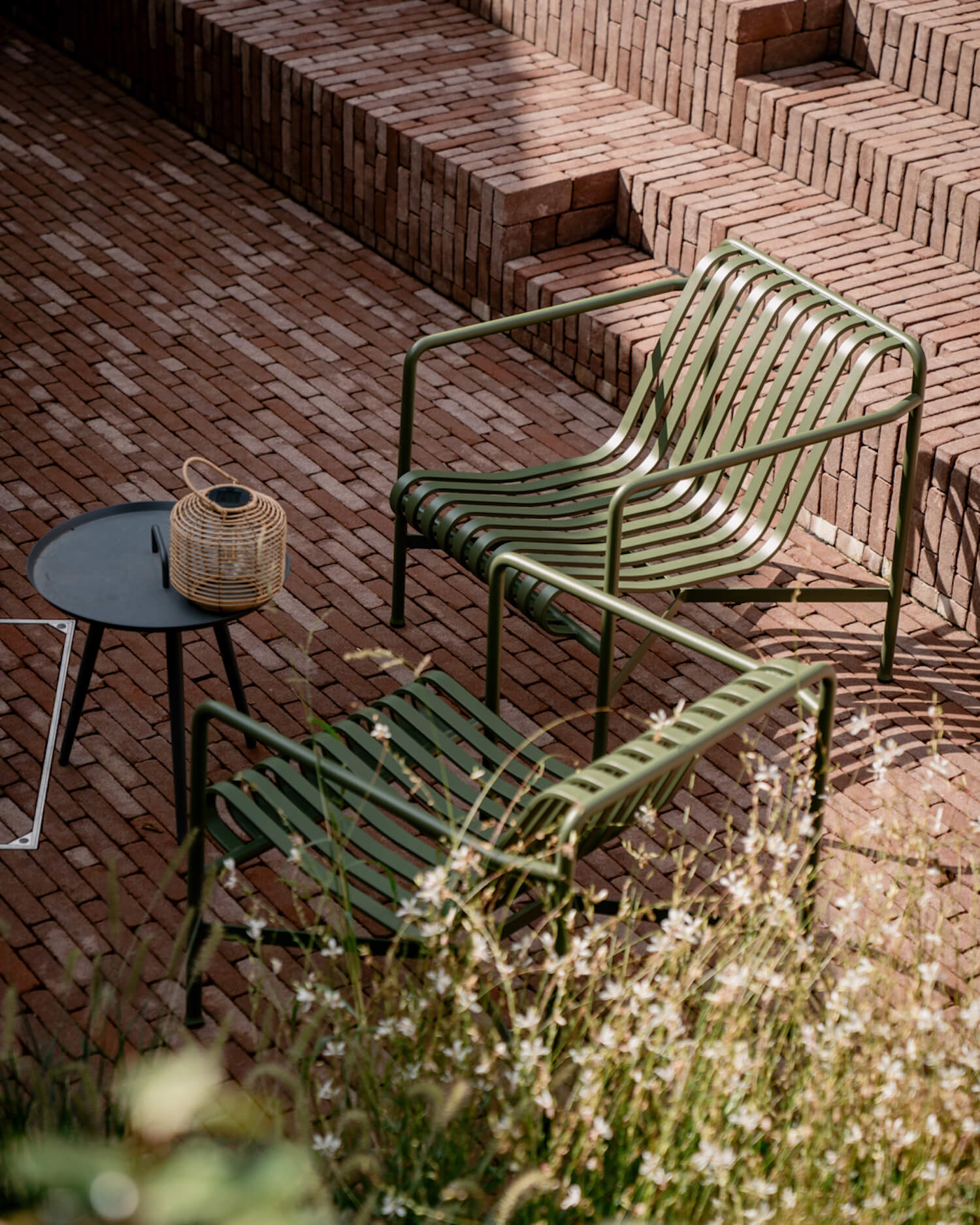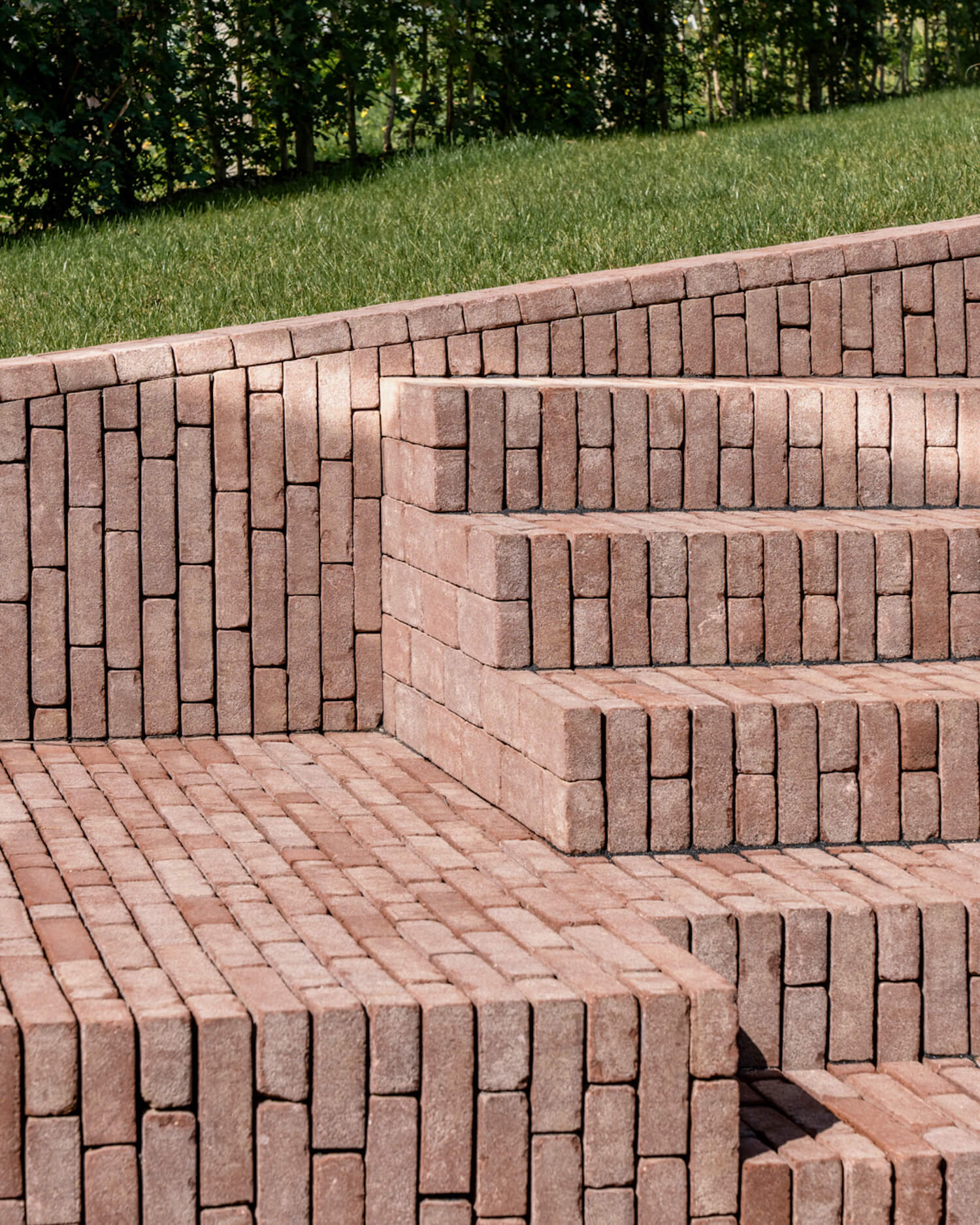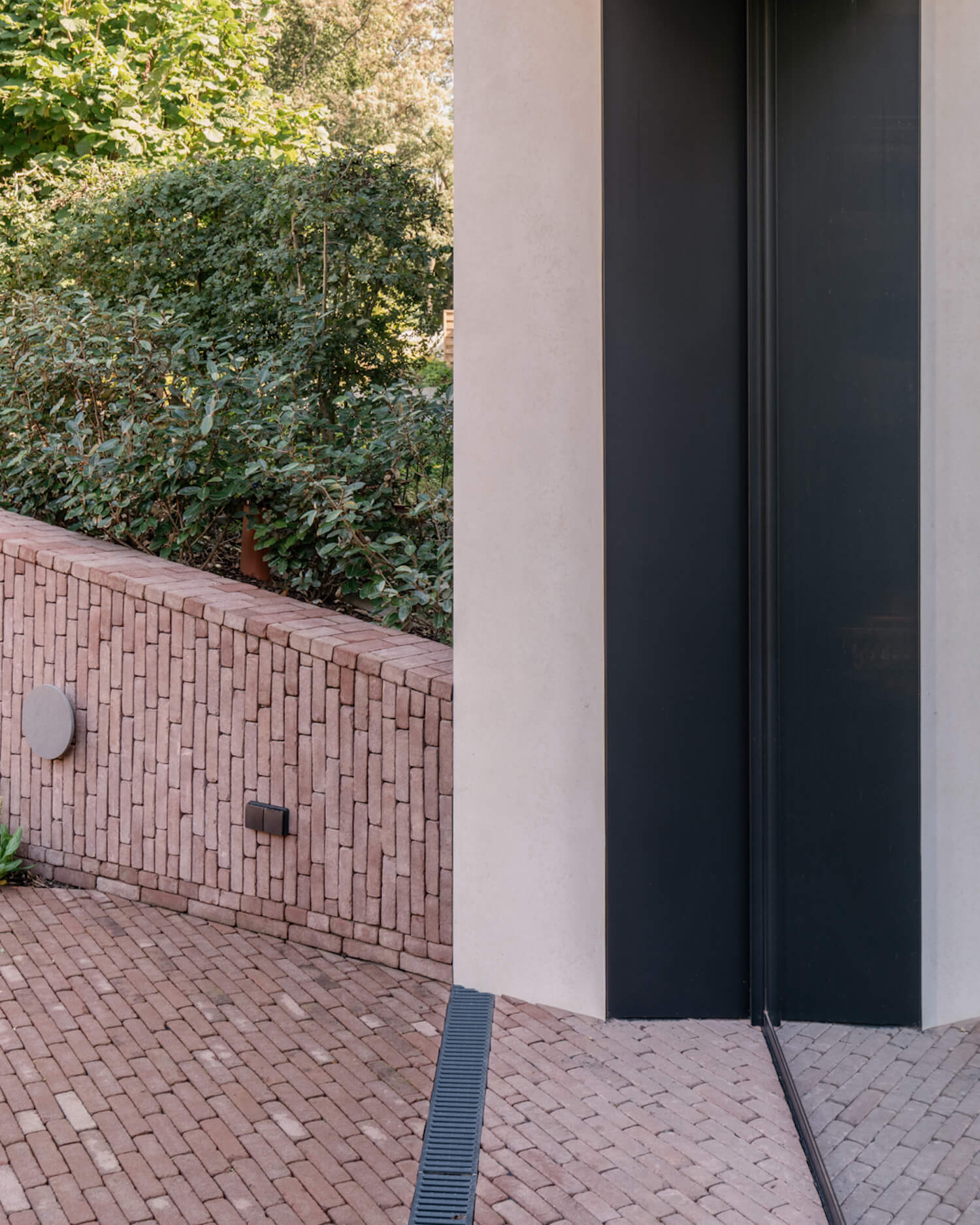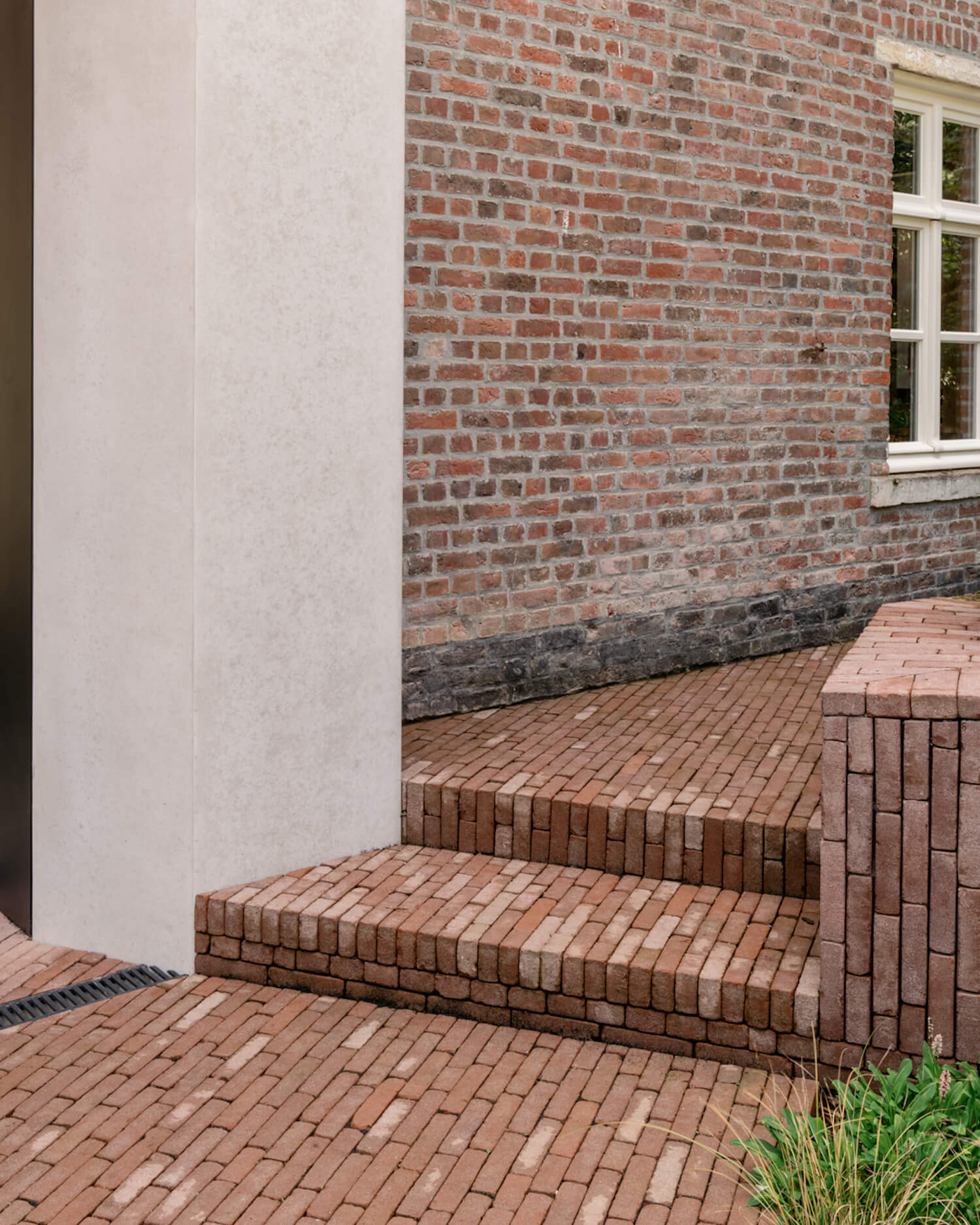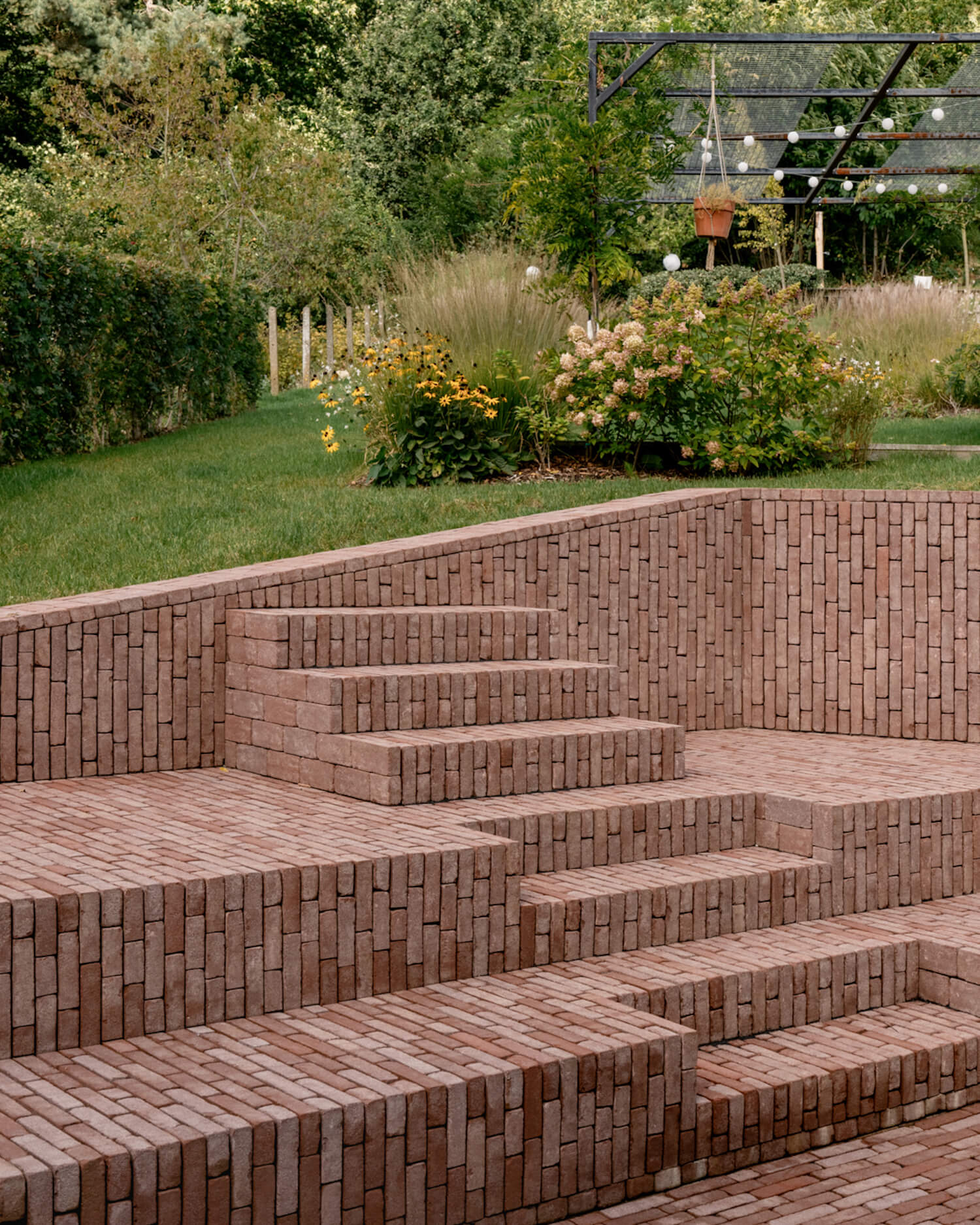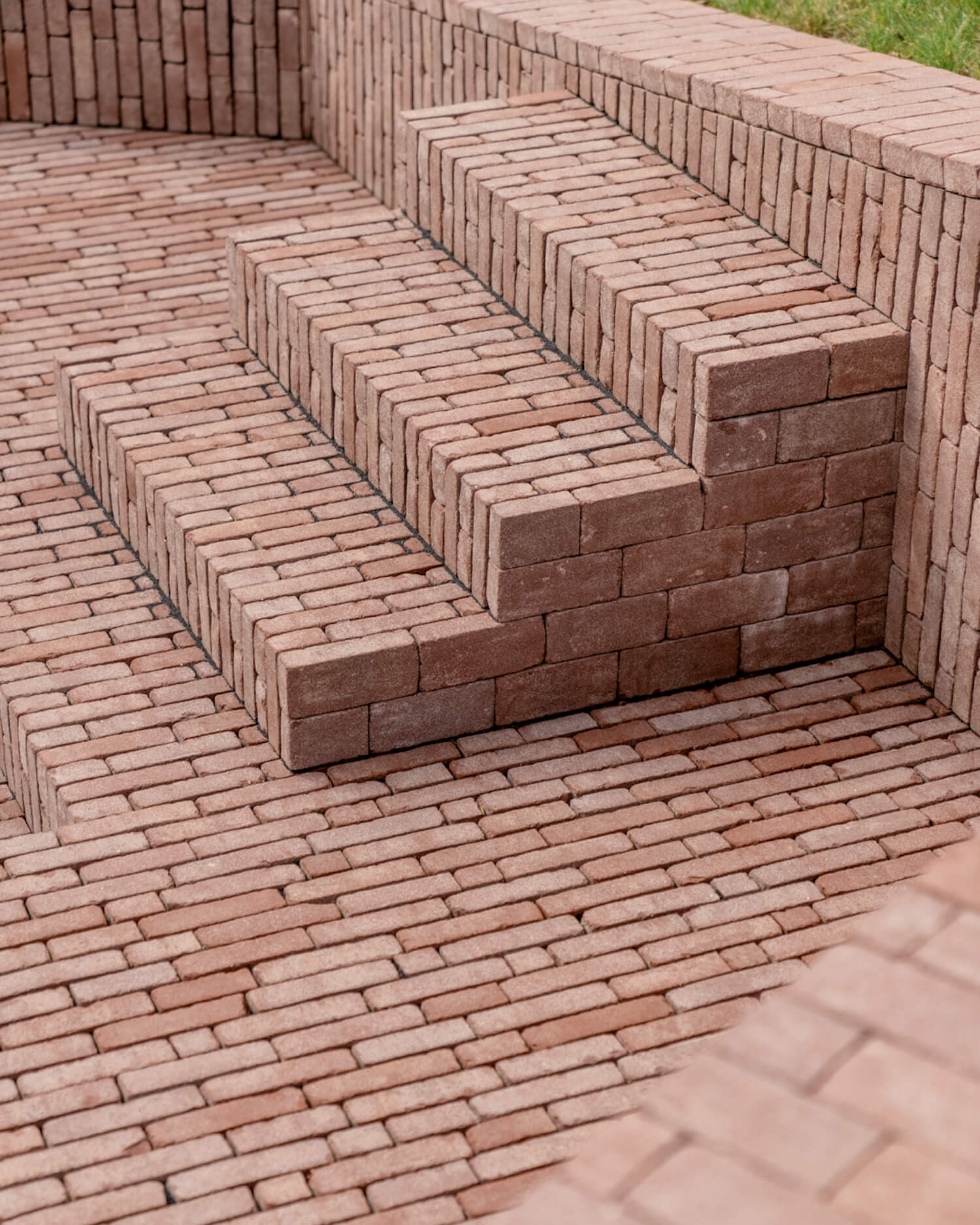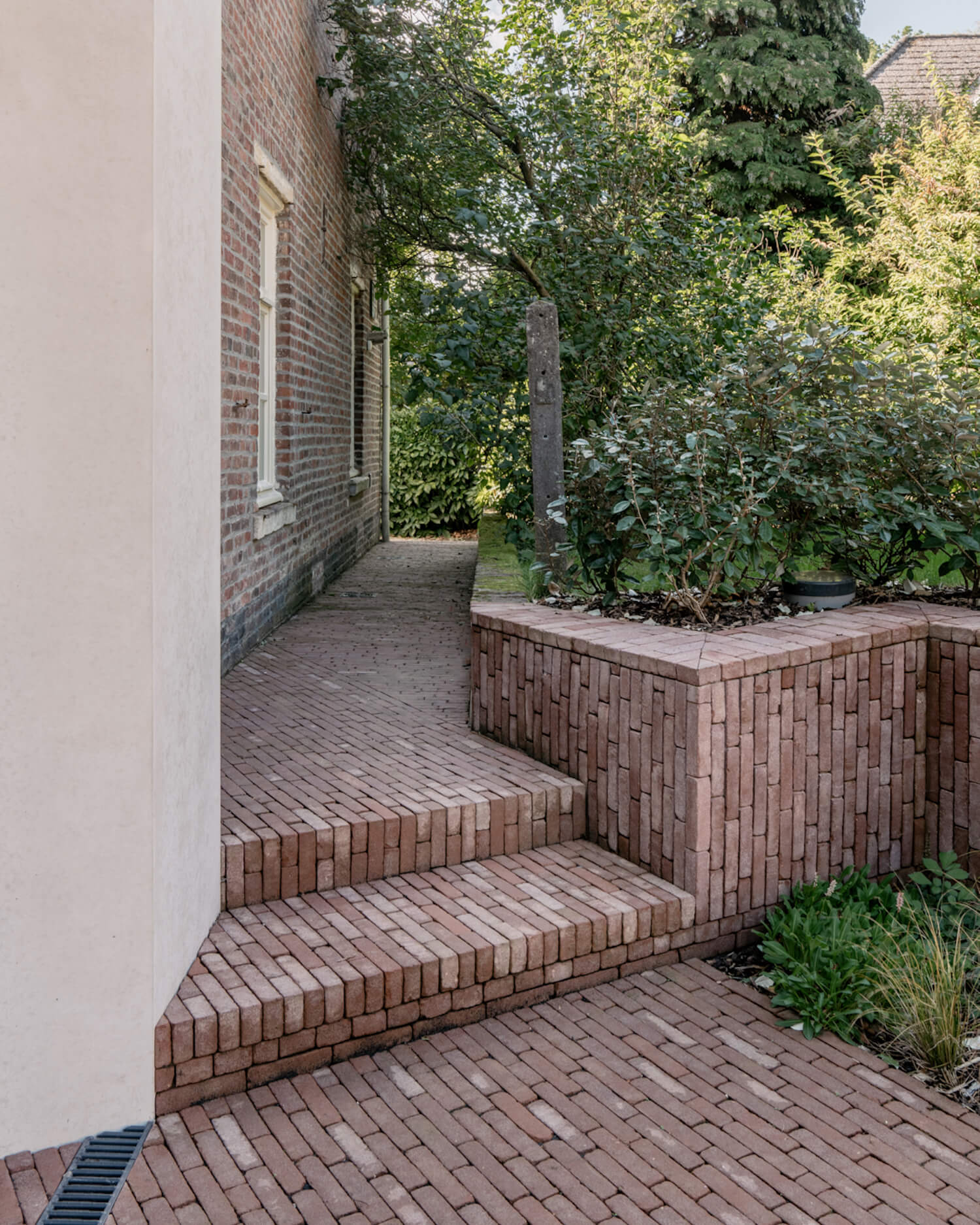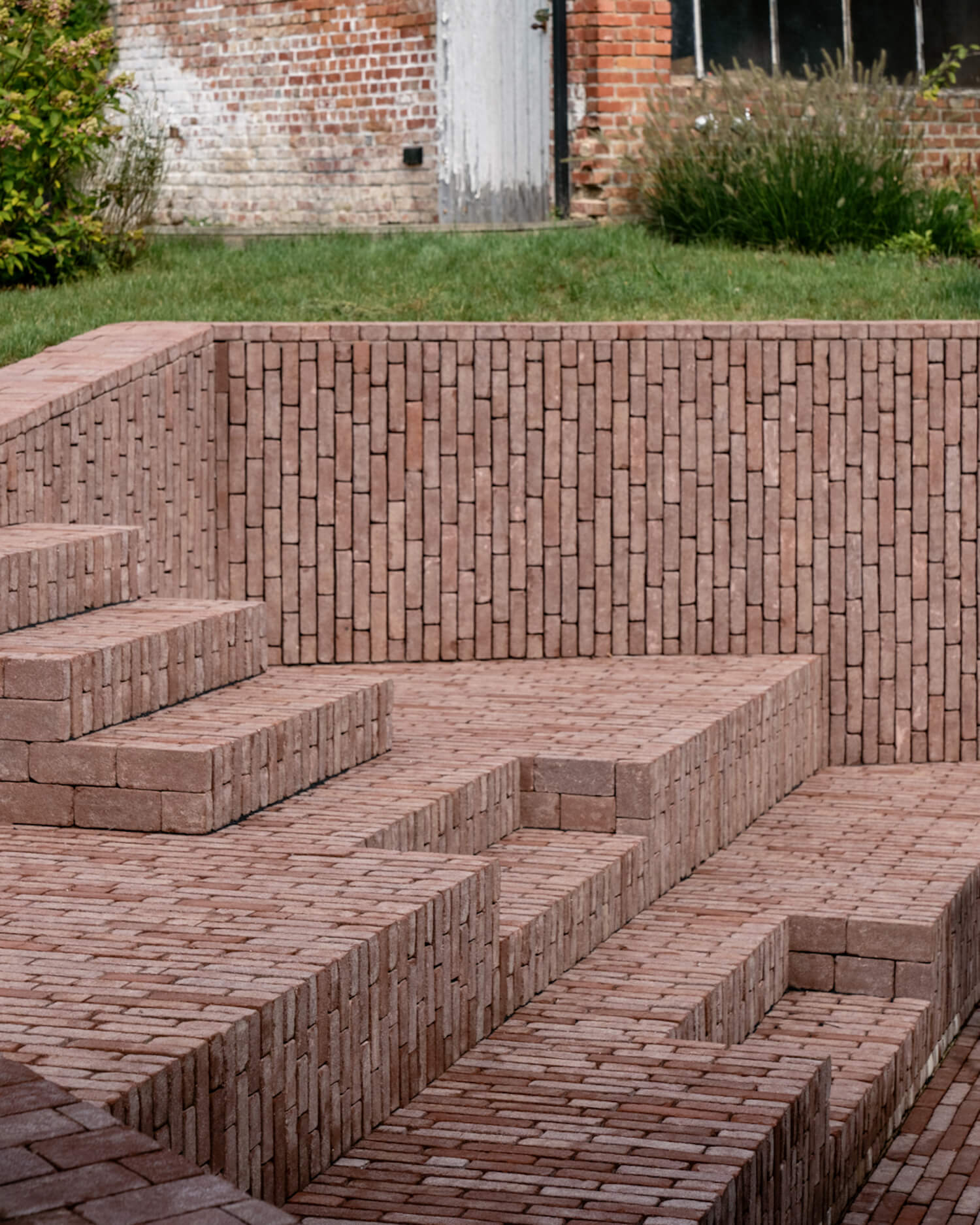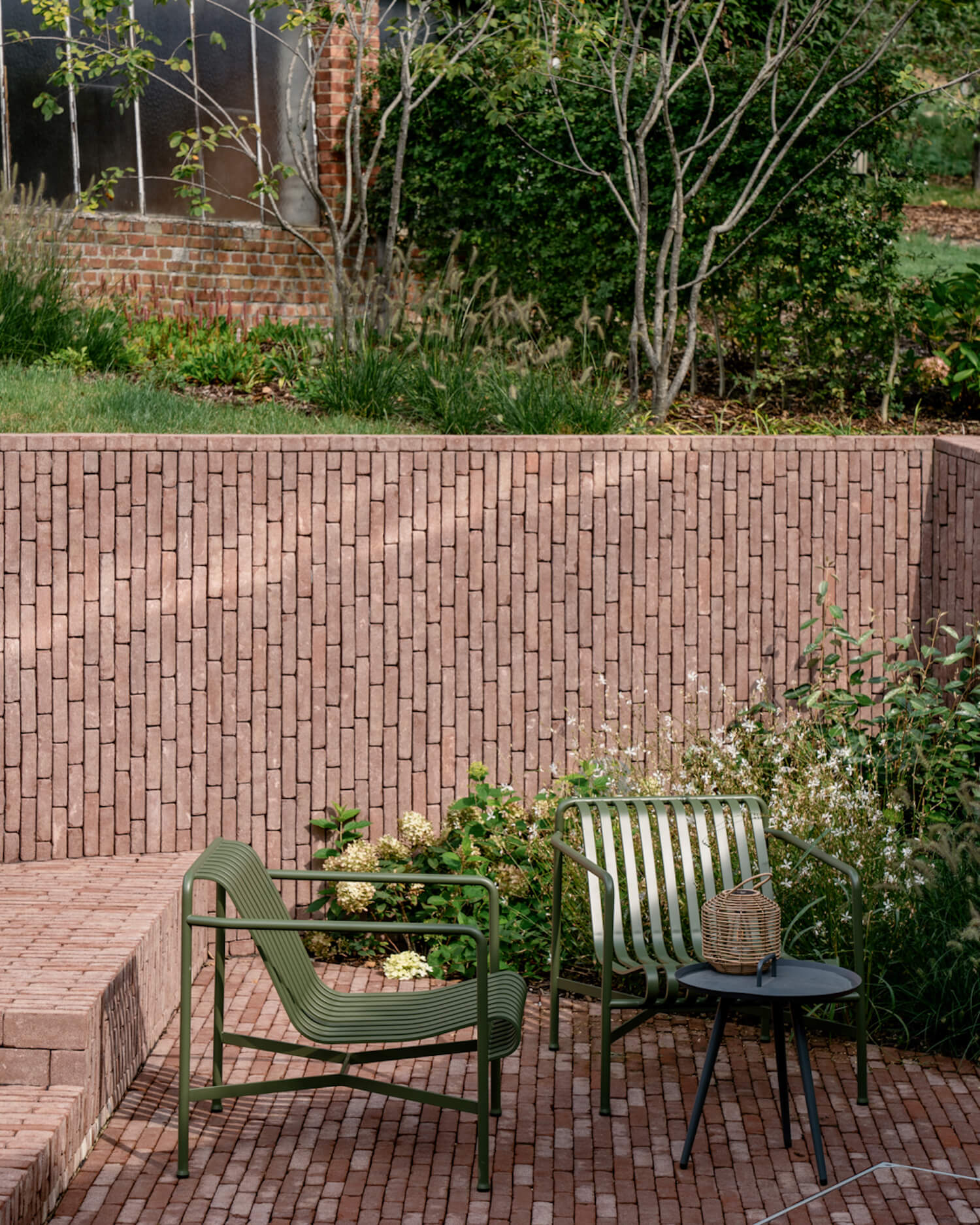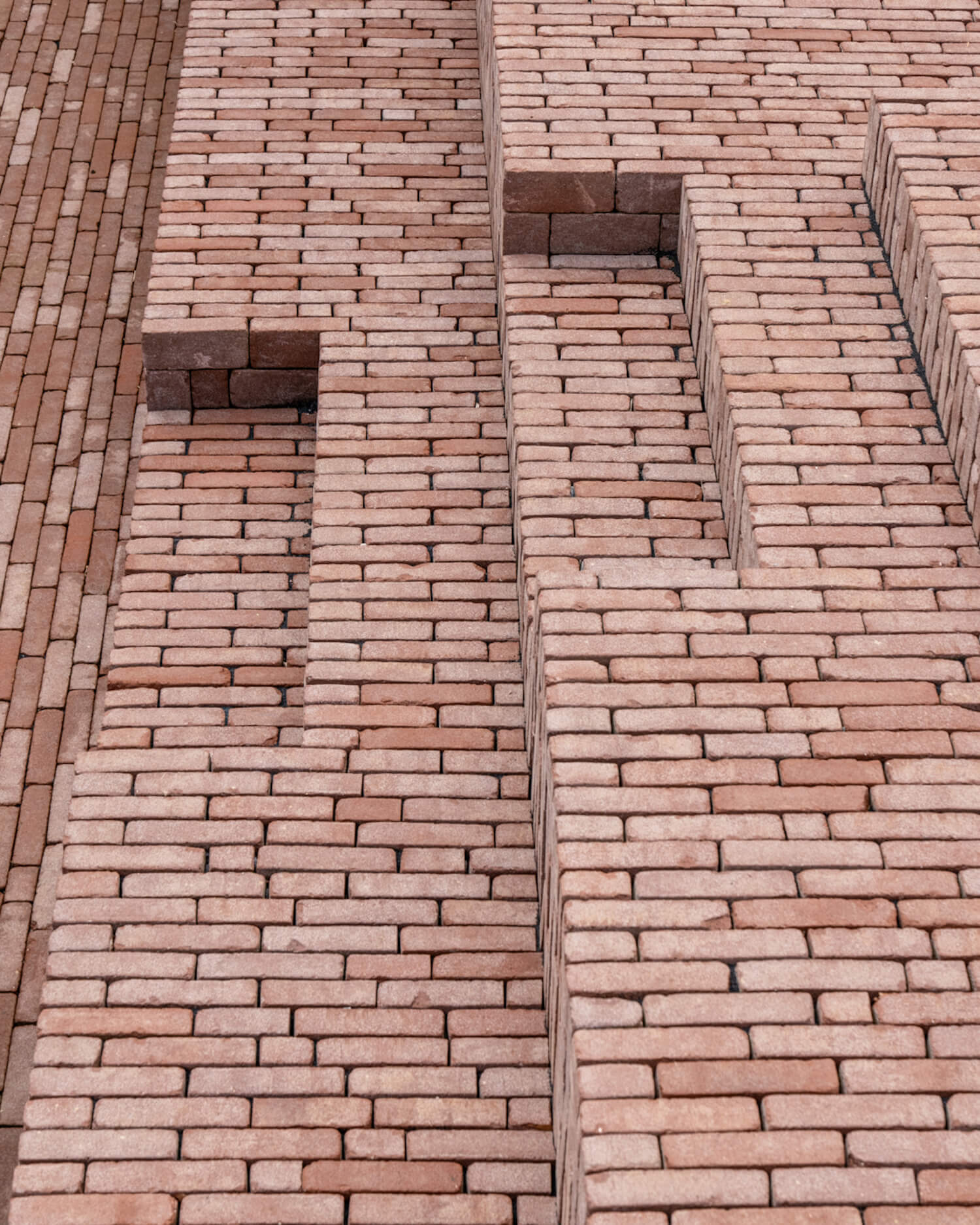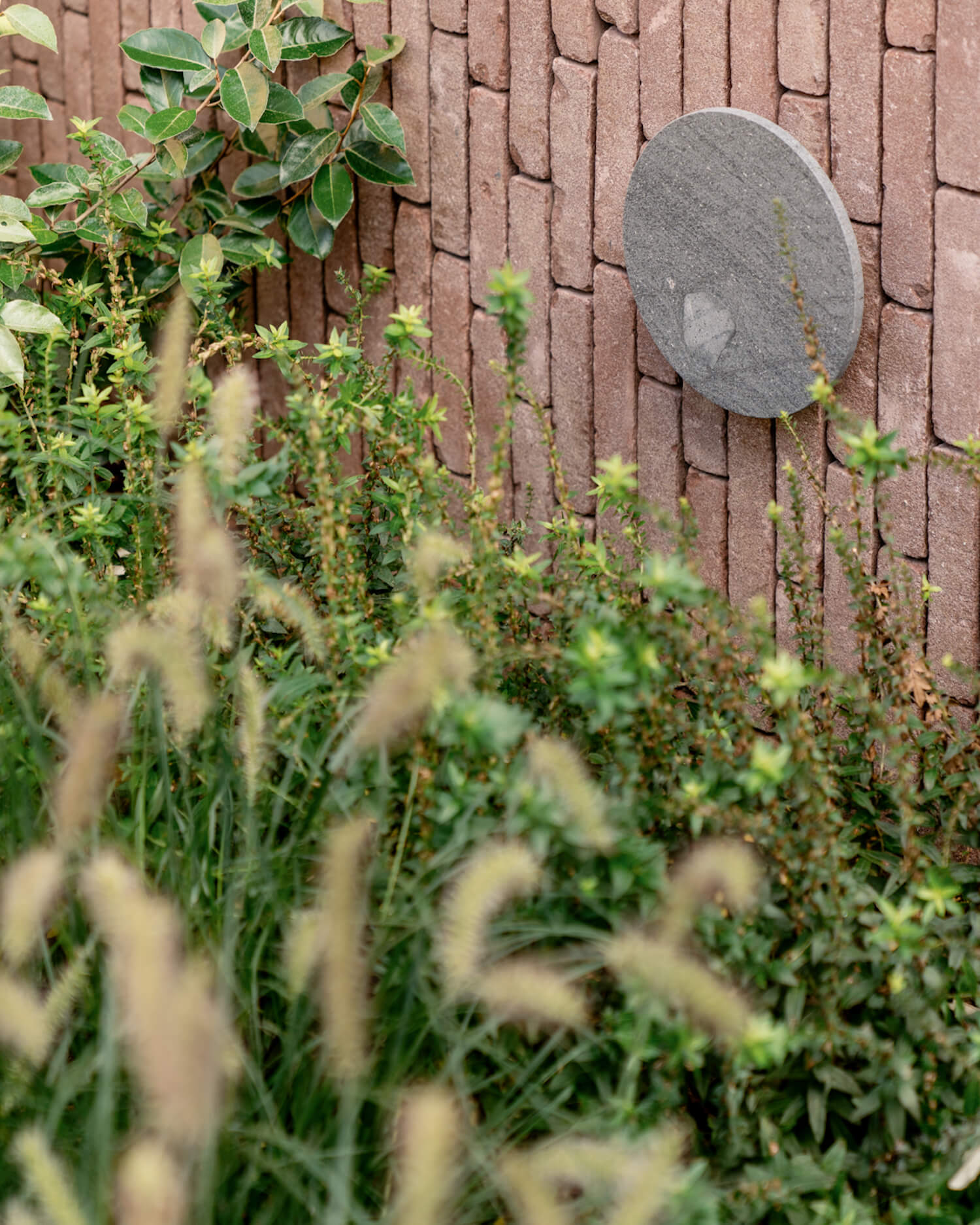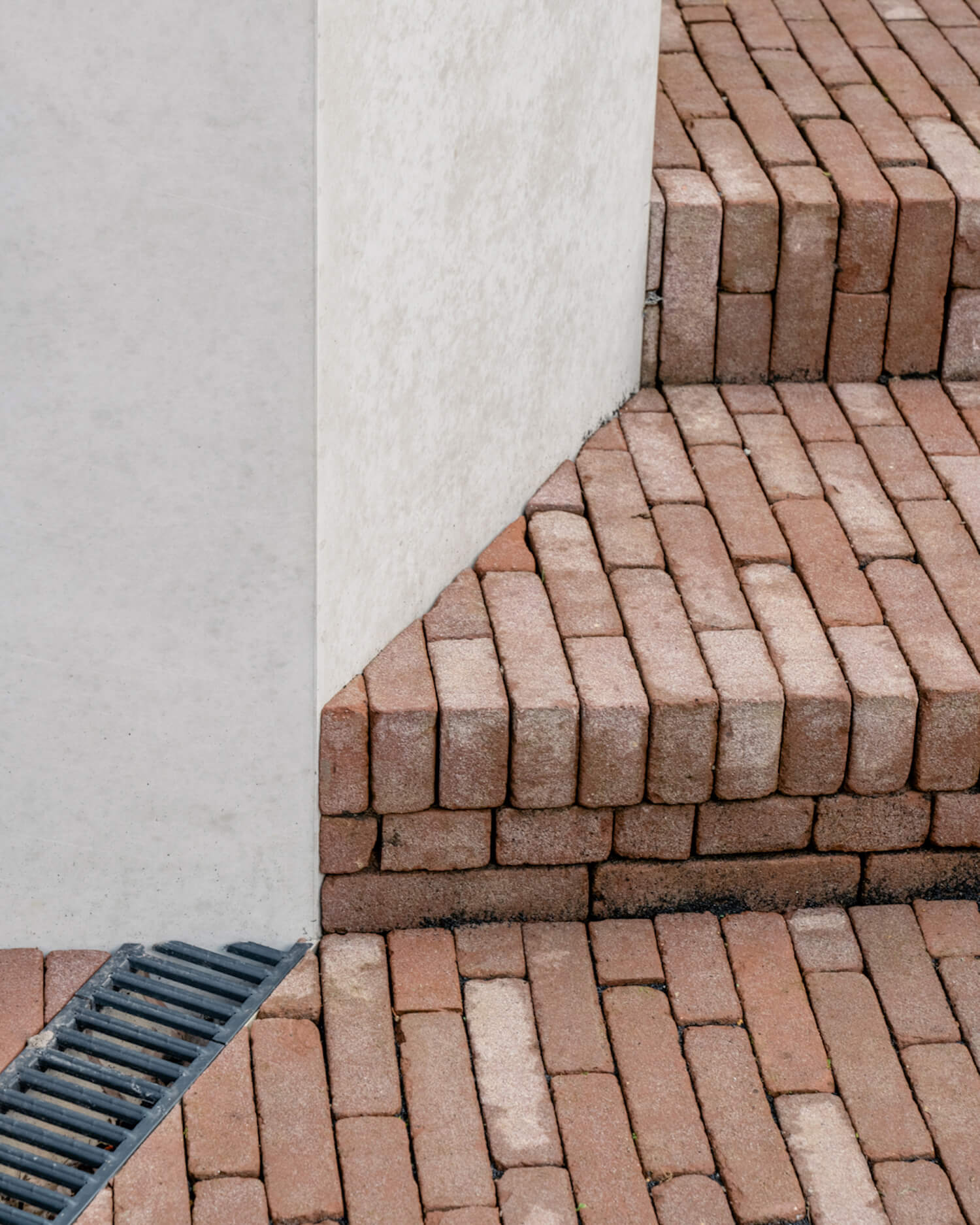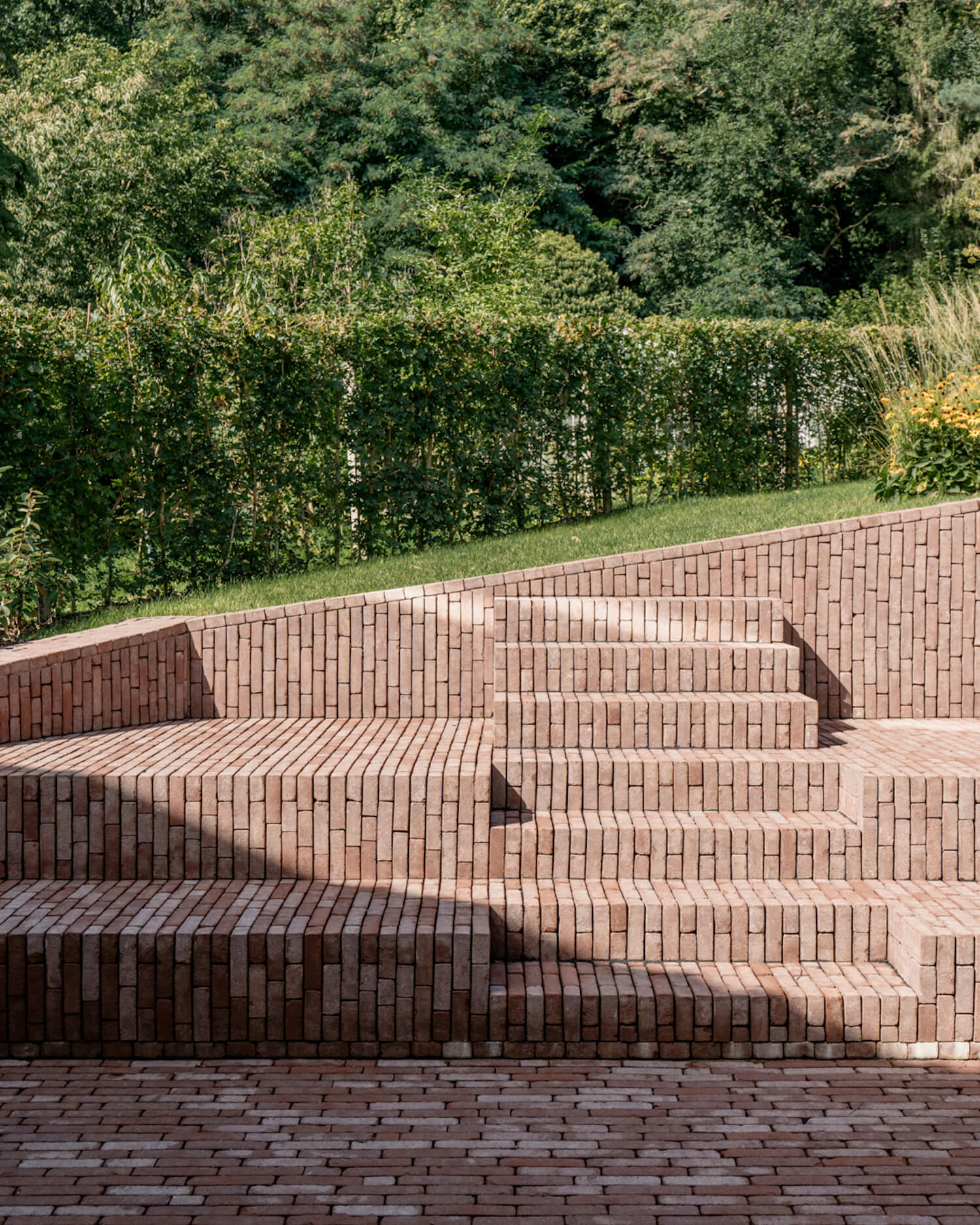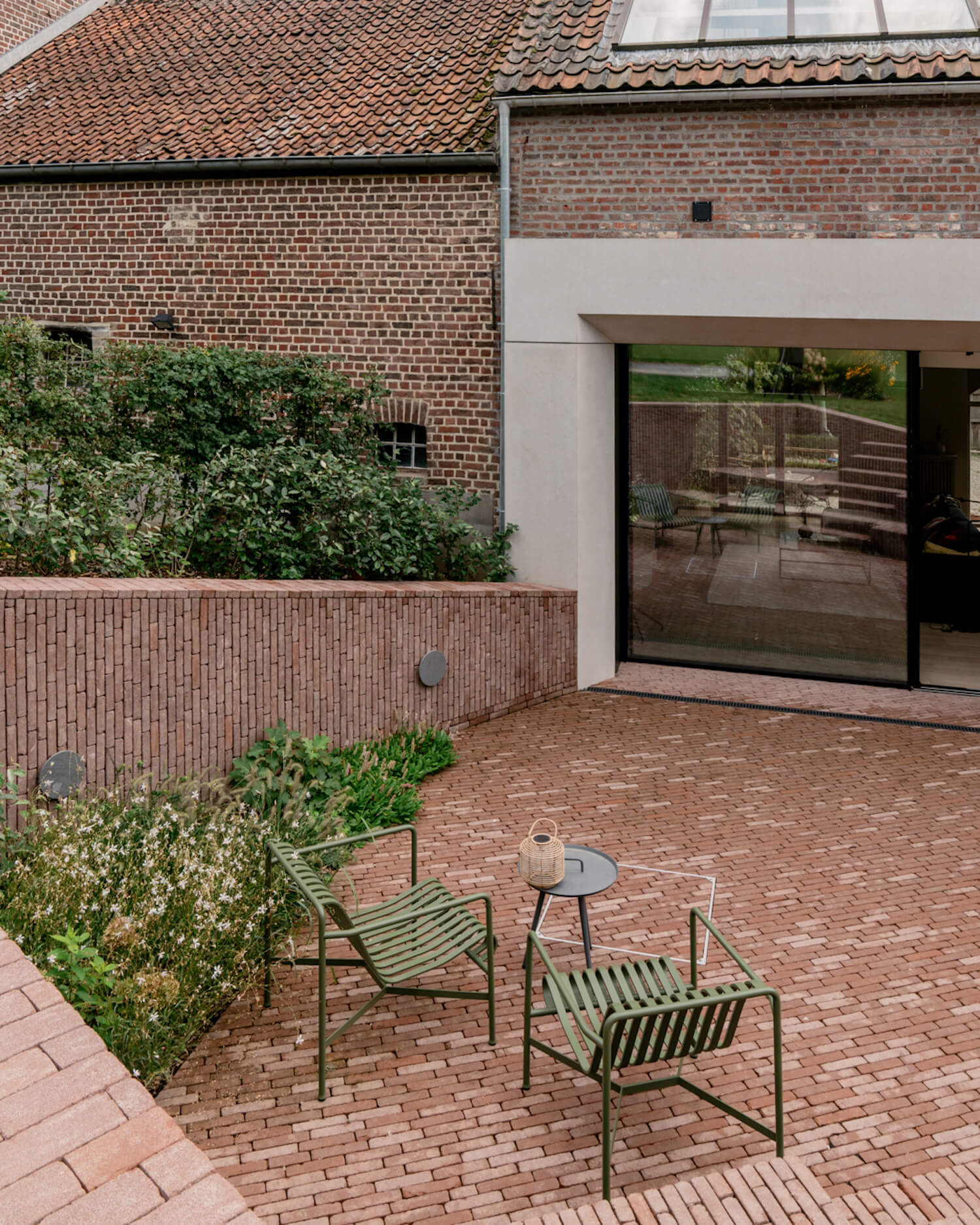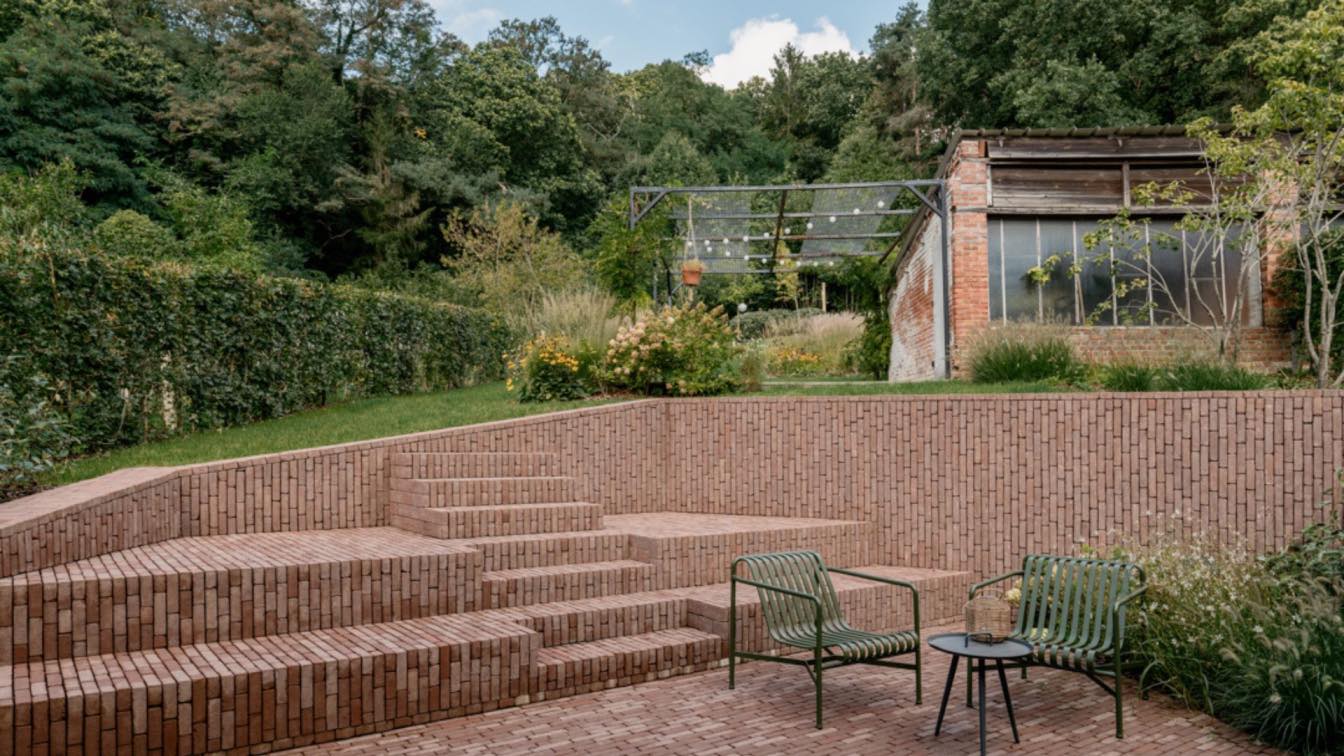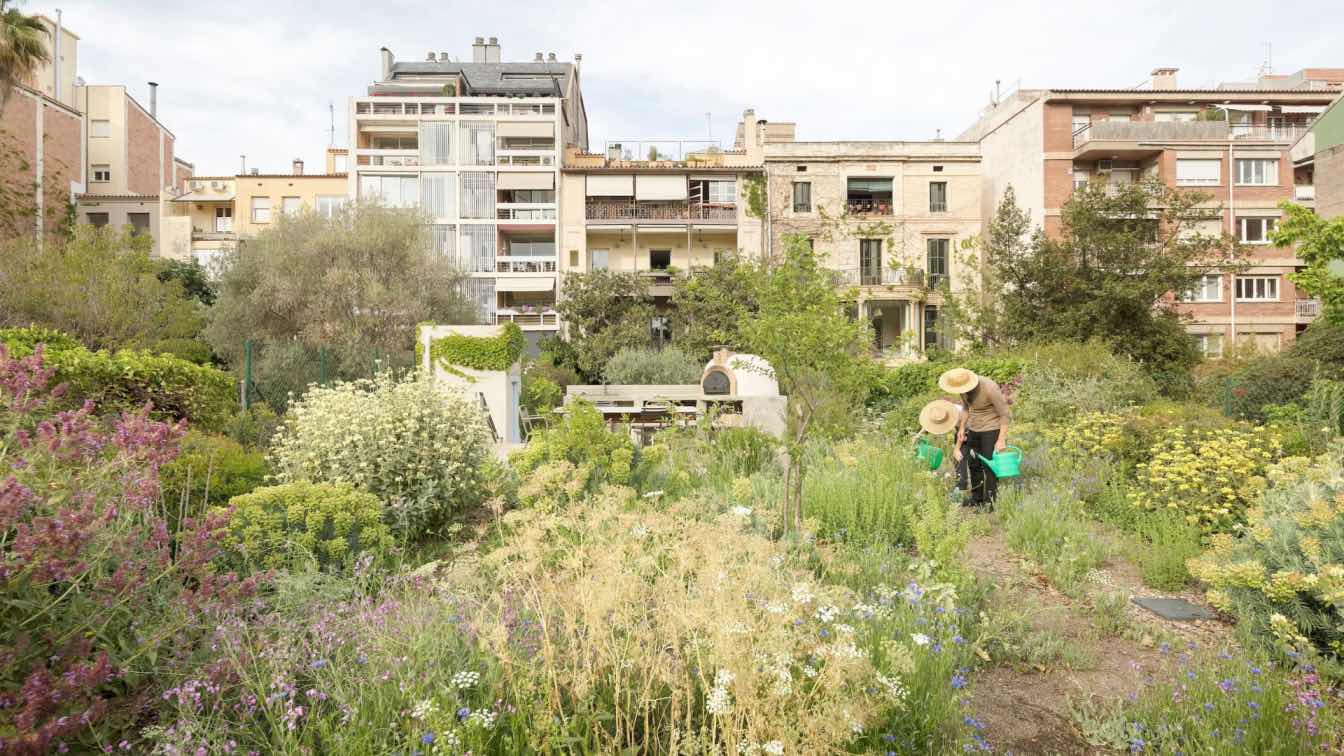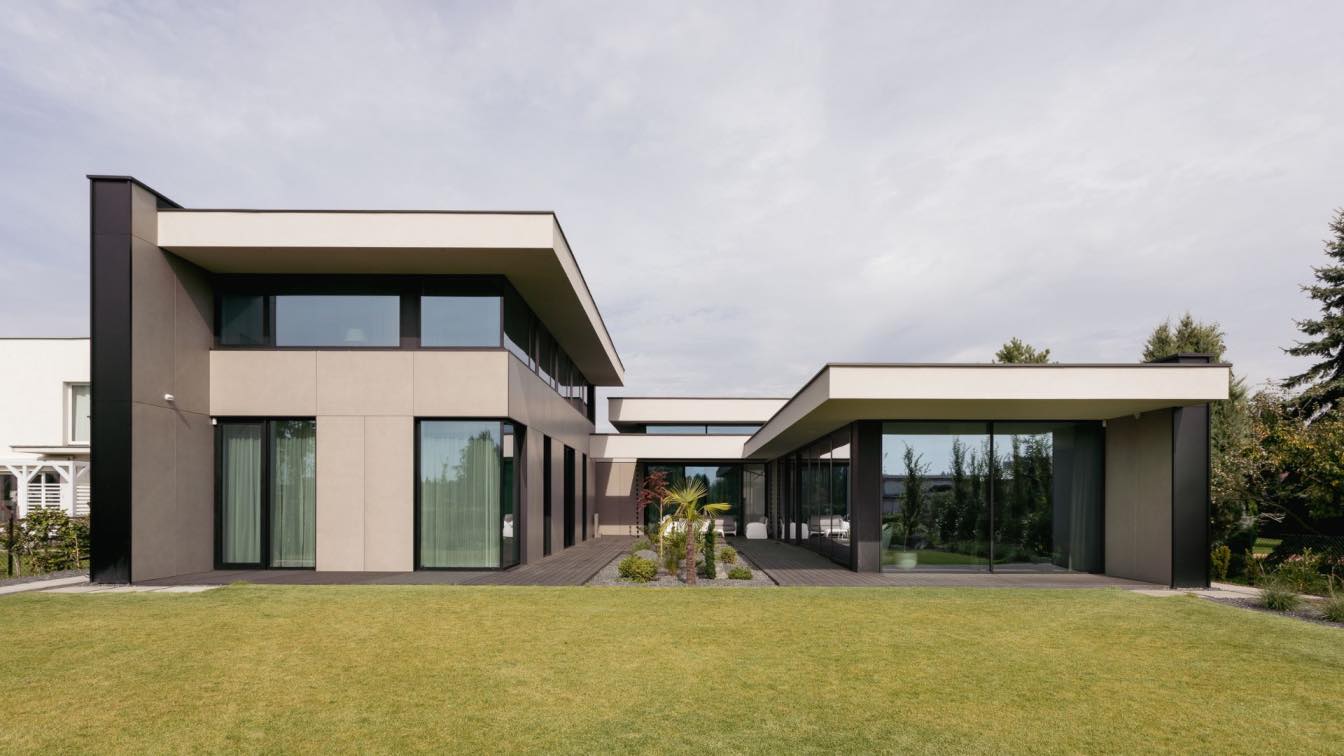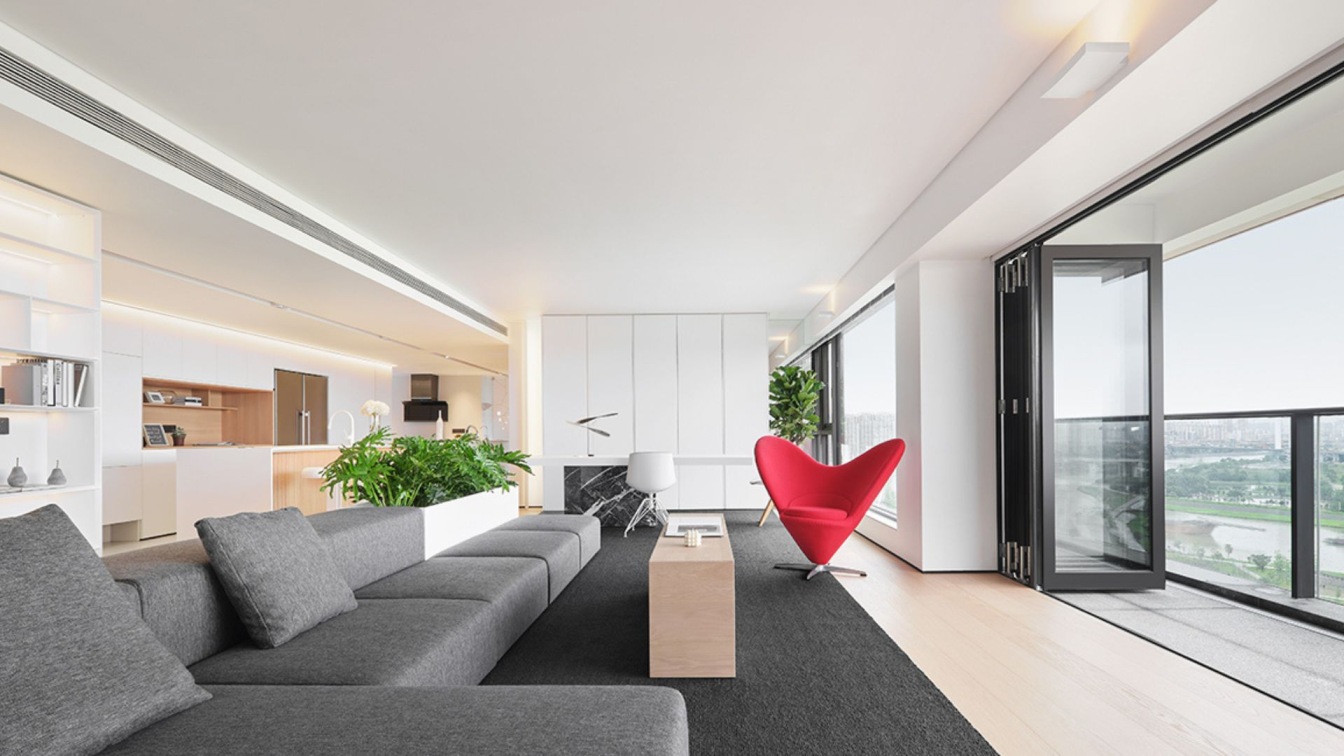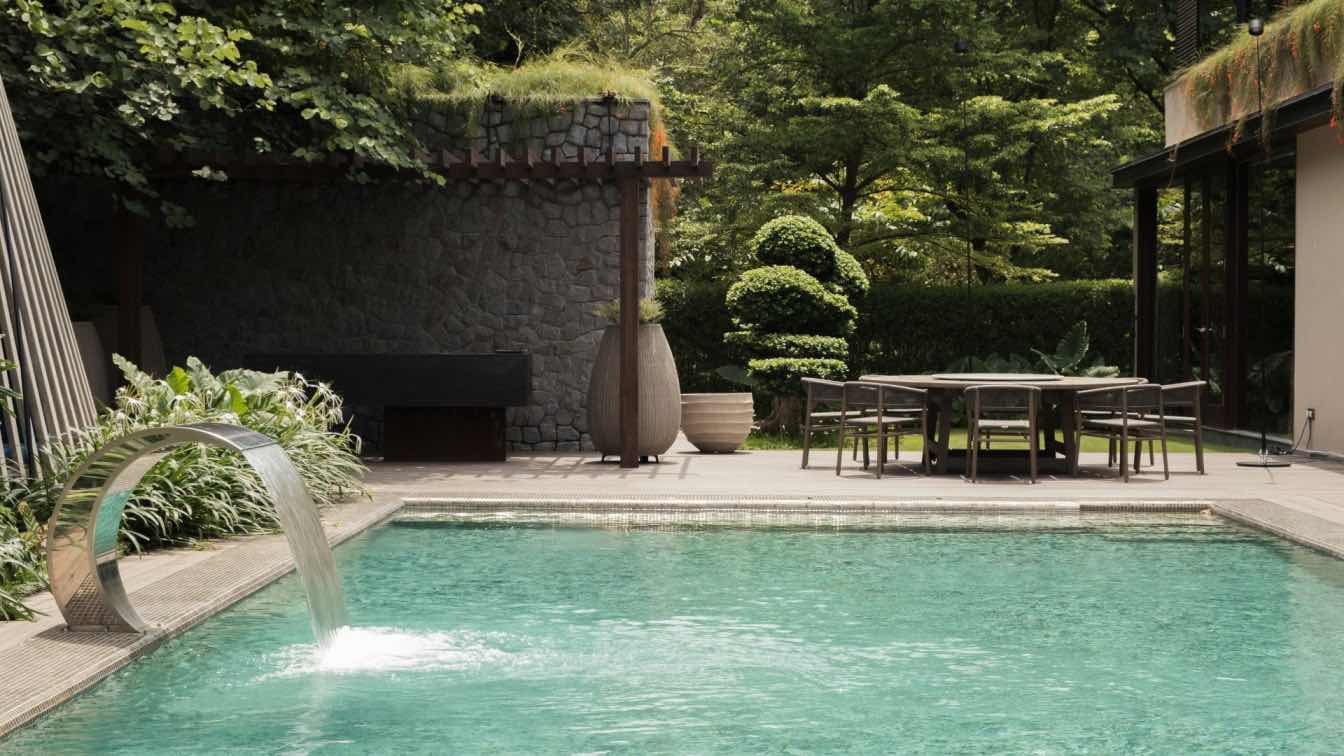Hey Pieter,
My wife and I bought a piece of land behind our house to use as a garden. Until recently, we did not have a garden behind our house. We looked into our living space at a closed wall. As a result of the recent purchase, we wish to create a window opening in our rear facade.
Studio Kloek (SK): “A window opening… yes, that could be anything of course.”
Client (BWHR): “We want the opening to be as large as possible, so that as much daylight as possible enters.”
SK: Okay, noted.”
The photos were taken by Hannelore Veelaert.
SO MANY OPTIONS!
Our search for a window opening started with a standard facade opening (A): a steel beam under the outer wall. Disadvantage? This will be a sturdy steel beam, limiting the height of the opening. Option B provides 2 steel columns that limit the span and thus generate a less high steel beam. The disadvantage of A and B? The beam, large or small, goes under the facade wall, which always limits the height of the opening.
BWHR: “No, that's not what we want.” Studio Kloek (SK): “We can place the structure that needs to support the existing facade on the outside of your rear facade (C-J).” BWHR: ah, interesting. Then we gain 30cm or something?” SK: “That's absolutely right.” BWHR: “Let's go for it!”
Various ideas saw the light of day: from a concrete porch (C and D) to a steel truss (H-J). Ultimately, the client opted for a concrete porch.
To optimize the slenderness of the concrete portico, the columns are constructed in a diamond shape. The window opens towards the garden, making the porch virtually invisible from the inside to the outside. The horizontal beam was given also the diamond shape for the same reason. More daylight flows into the interior. Win win!
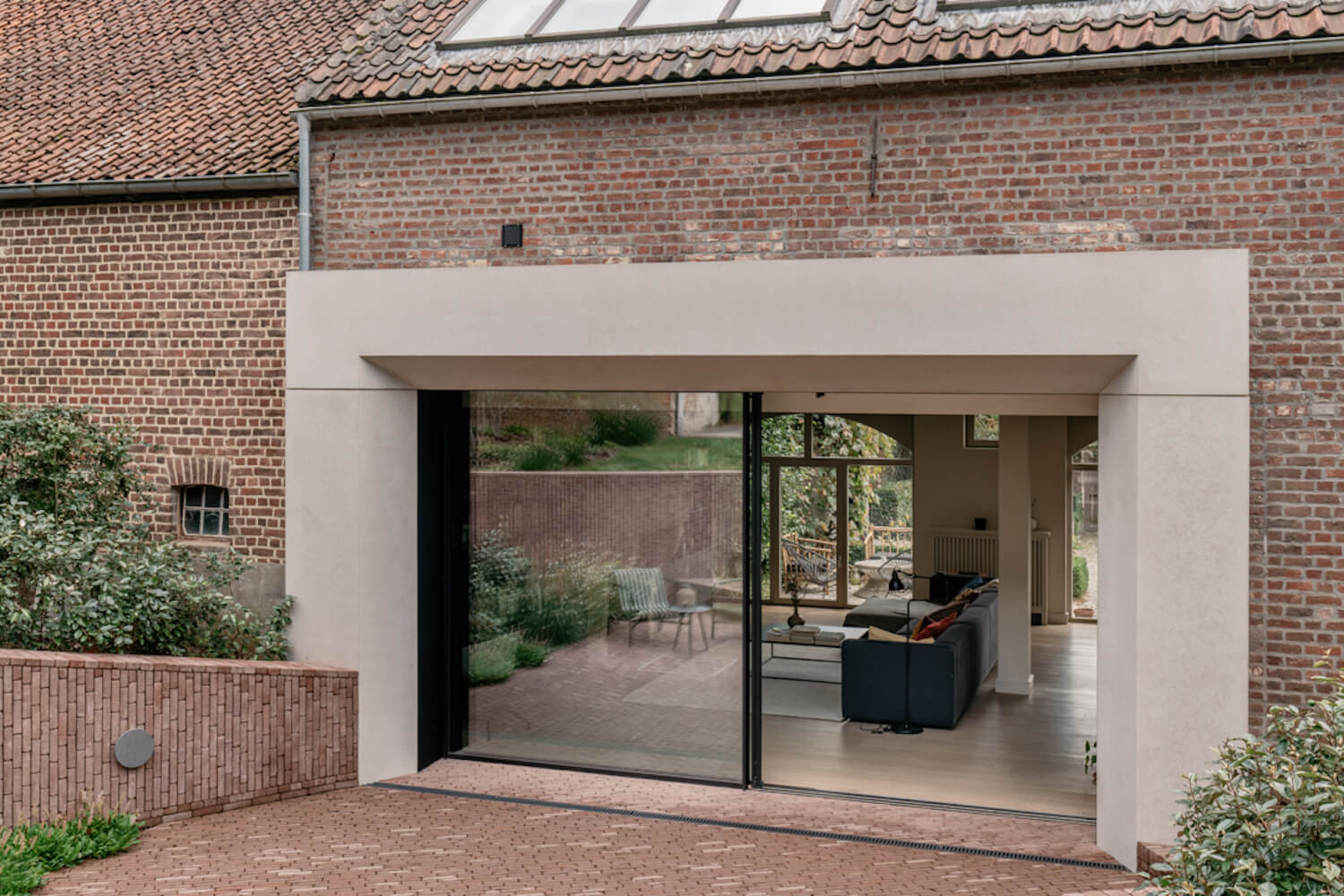
THE ORIGIN OF THE TERRACE
There was once an on-site meeting after the design of the 'Portiek' was completed. The client came up with the idea of providing a terrace adjacent to the living space. Because the garden slopes upwards towards the forest behind it, the client asked us to draw up a design for the terrace. The feeling of sitting in a concrete tank with high retaining walls had to be avoided at all costs.
The floor plan of the terrace is created by the diamond shape of the concrete porch (Portiek). The sloping lines of the porch continue into the retaining walls, so that the terrace opens up to the garden. The retaining walls literally turn away from the living space. As a result, they are not present in the interior view to the outside. The retaining walls that are visible are at the very back of the terrace. The stairs against this retaining wall soften the verticality of the wall and add a function, namely a stand, a place in the sun.
A green zone to the left and right of the terrace brings nature as close as possible to the living space without detracting from the effective terrace space.
CHOICE OF MATERIAL
The client and Studio Kloek jointly chose a light red/pink clay paver as the material. Since we only use this material to dress everything, it should not be too invasive a color. The clinker gives a warm and playful character to the terrace. The vertical brickwork against the retaining walls increases the slenderness of these walls. The vertical stones are bounded at the top and bottom by an end stretch layer. These stretching layers demarcate a zone within which the vertical masonry in a random pattern is given free rein. The retaining walls closely follow the slope of the garden to create as little of a tub as possible. The stands and stairs were also finished with vertical masonry. The pavers of the terrace are located perpendicular to the laying direction of the stands.
A cut from the stairs looks like a facing brick wall.
